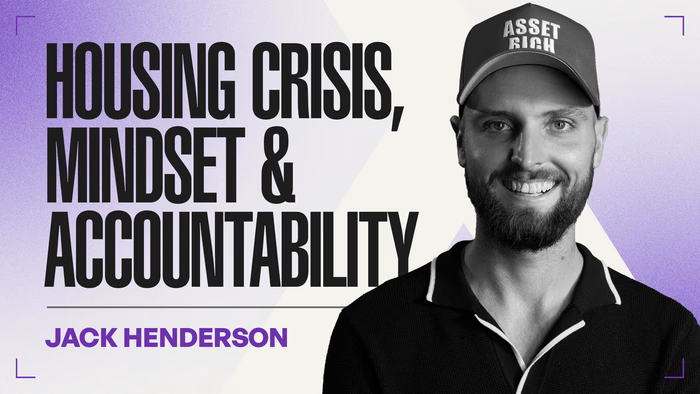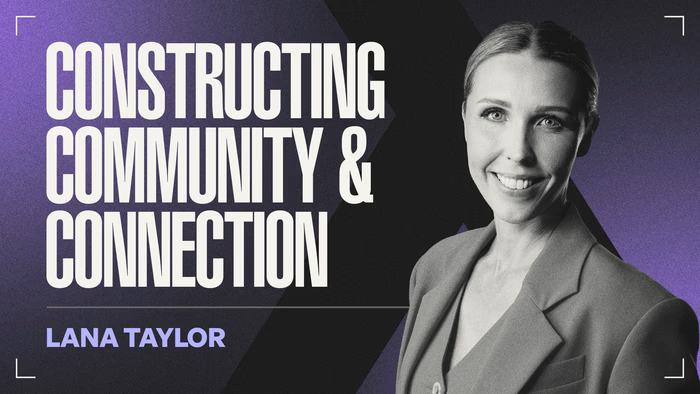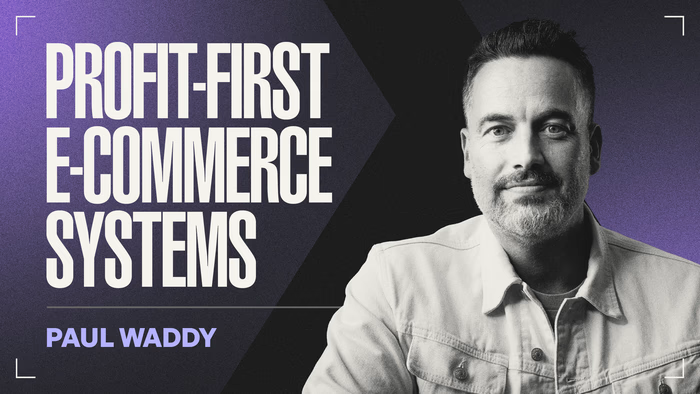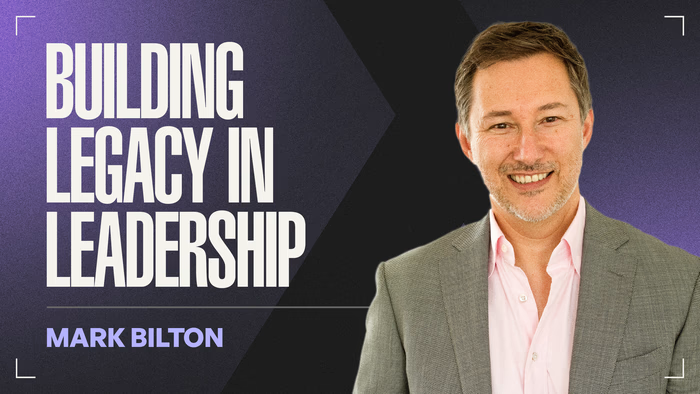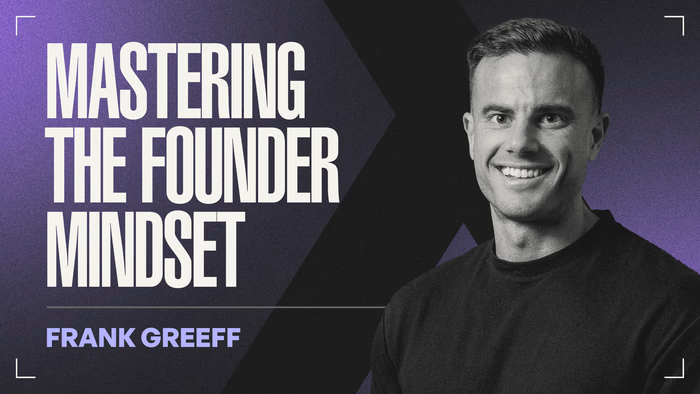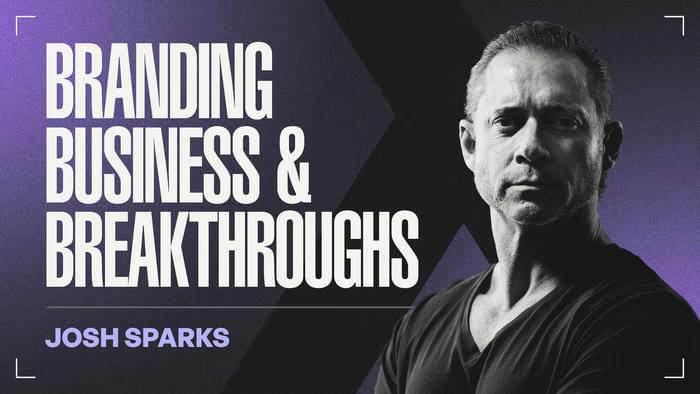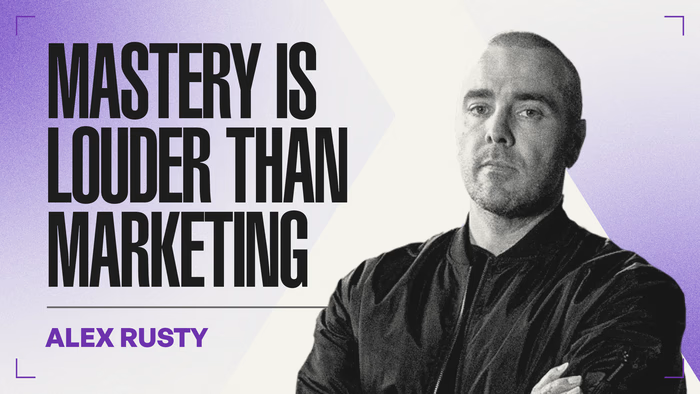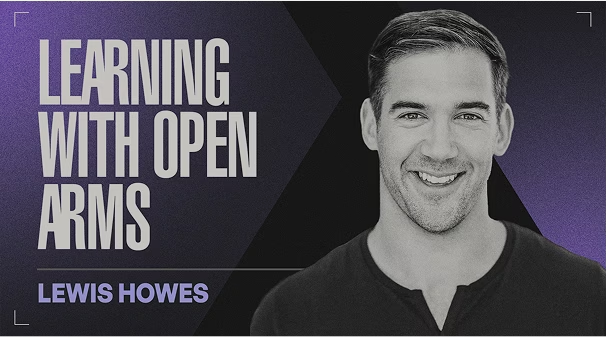


TLDR
Summary
The interview features Lachlan Cameron, Managing Director of Canopy Green, a large-scale residential land development fund, who discusses the mindset, mechanics, and systemic challenges of the Australian property market.
Lachlan acknowledges that the current Australian housing system is "rigged" (with high prices and a bias against renters) but asserts that the opportunity is still immense due to under-supply and demographic trends (Millennials moving to houses). He advises against adopting a "victim mindset," urging people to take radical accountability for their circumstances and find solutions.
Strategy and Financial Mechanics:
- Contrarian Thinking: He advises first-time investors to research property cycles and look for regions currently in a "trough" (e.g., following a local economic downturn) that have infrastructure or job growth planned, as the market lags behind the news by 6–12 months.
- The First Step (Capital): For an average-income person, he suggests either rentvesting (renting where you want to live and investing elsewhere) or looking at lower-barrier-to-entry assets, such as commercial property, which can be acquired with a smaller deposit.
- Leveraging the System: Buyers should be "mad not to" take advantage of First Home Buyer incentives and immediately move out after a year to rent the property out.
- Tax Advantage: New properties built after 1987 offer a major tax benefit by allowing the owner to depreciate the cost of the base build over 40 years, substantially reducing taxable income.
- Research Focus: Publicly available data from the Australian Bureau of Statistics is more than sufficient. Investors should focus on future infrastructure, job growth, and transport lines in an area to predict value increases.
Mindset and Legacy:
- Security vs. Freedom: He emphasizes that the cultural obsession with owning a home is primarily driven by a need for security (feeling safe) and intergenerational expectations, even though renting can offer greater financial freedom.
- Against Entitlement: He believes many millennials suffer from an entitlement issue, falsely believing they should have the same effortless entry level as previous generations.
- The Builder's Drive: His personal drive is rooted in the belief that he is a builder who should contribute to solving the national housing crisis by leveraging opportunities in areas like Gippsland, Victoria.
Highlights
- Mindset: Rejects the victim mindset; everything is your fault, which makes you the solution to every problem.
- Investment Strategy: Look for property markets currently in a trough where the price multiplier is less than 11x and future infrastructure is planned.
- Financial Advantage: New properties offer a huge tax benefit through depreciation of the base build over 40 years (the "Rule of 1987").
- Renting Mindset: Encourages a "rentvesting" approach to maintain liquidity and freedom, rather than buying a primary residence that consumes 70-80% of net income.
- Commercial Property: Commercial is a viable option for beginners as some banks will lend with a lower deposit, and tenants typically pay for all outgoings (rates, strata, repairs).
- Systemic Issue: The Australian property market is fundamentally under-supplied, a factor he believes will drive prices up over the next decade, making it a good long-term investment.
- Personal Challenge: His only non-financial door he wants to kick in is tackling the red tape and bureaucracy of local governments to speed up the national housing supply.
- Legacy: Wants to be remembered for his visionary work in land development, helping to solve the national housing crisis, and supporting regional job growth.
Transcript
00:00:03 - 00:00:55
I would like to welcome Lachlan Cameron to the agency podcast. Welcome. Thank you, Dane. What an intro. We're excited to have you here, man. And I think, you know, for today's conversation, it it's it's a heavy-handed one. Obviously, we're in the Australian market. Um, inflation's through the roof. People are doing it tough. And I really wanted to unpack together with you. Even from my own standpoint, I'm I don't own property. Um, I have been fascinated with it for the better part of probably
00:00:29 - 00:01:27
10 years. I've read all of Robert Kiyosaki's books. I've read the barefoot investor. I'm across Grant Cardone's teaching on Cardone Capital. For me, property is this thing that um kind of eludes me. I don't fully understand it. It's something I one day want to dip my toe in and understand better. Um, but I'm excited to just go right down the rabbit hole with you on this today. So, a statement I just want to unpack here to kind of open things is that Is buying property still the smartest
00:00:58 - 00:01:54
path to wealth or are we just propping up a broken system that doesn't serve the next generation? Oh wow. So you said a heavy heart is a way of looking at this hopefully only with a light heart if we can if we can possibly do that. But I'm going to say both. Um the system in my eyes absolutely needs tweaking. It's not broken but there's a lot of cracks there that need repairing and then fixing. Let's not throw it out and let's actually work with what we got here. Um I mean a lot more my
00:01:26 - 00:02:22
understanding is a lot more millionaires being created in Australia from property than any other asset class. So and in my opinion that's going to keep happening over the next few decades. So would you say it's the same in the UK in the US abroad? Would you say that you generally see the same kind of um propagation of like property is the way to make wealth? The the biggest thing that Australia has that a lot of those other countries don't has is our our net population growth. Um I think around the world now
00:01:54 - 00:02:51
some population natural birth rates are declining means that you know less people out there doing their thing. What we have is this huge bucket of people called millennials of which I think your age 34. I'm right in there man. I'm 35. Yeah. Absolutely. um are out there now who were going to go from living in that trendy apartment um you know with their hipster glasses and so forth to all of a sudden now having kids and decided you know what no [ __ ] that I want my own backyard want to walk out the back door
00:02:23 - 00:03:11
and put my fingers in the soil I mean that's sort of what what people want so I think that yes there will be a lot more demand coming out over the next decade and there's just not enough homes and apartments just homes will stop getting built for these people so anyone anyone who's fortunate enough to get into the property ladder, if that's the right word, and I hate that term, but I'm going to use it anyway, the property market now, uh, I think will do very well over the next decade. I I think
00:02:47 - 00:03:52
that like from for myself, if I'm just sharing my standpoint, is um, you know, consuming Robert Kiasaki's content, Grant Cardone's content, it it I understand that the way that the property market tends to work in the US is quite different to Europe and it's very different to the Australian market. For example, um you know, I was looking into some of the statistics today. For example, in places like Germany, um it's common that north of 70% of the, you know, market rent. Um and therefore, the
00:03:19 - 00:04:14
policies from politicians, etc. are in the renters's favor. However, in Australia, it seems to be inverted. It seems like if you're an Australian citizen and you go in for a loan for a business or you go for a credit card or you go, you know, you want to get yourself um a car loan, one of the first questions they ask you is, do you own a home or do you rent? And the second you take tick the rent category, you immediately society. Yeah. You're like, I'm a secondass citizen. If I get on the
00:03:47 - 00:04:36
plane, I'm turning right and I'm walking all the way to the back and the banks will treat me different. Um you know, people of wealth will treat you different. uh people in business will treat you different even when I tell people I run a business but I don't own a property people are like what's wrong with you so so as a nation do you think this is inherently an Australian issue or do you think it's a global issue to treat renters like secondass citizens you did say some questions would be
00:04:11 - 00:05:02
spicy here Dane and that's a [ __ ] spicy question so yes um you're absolutely right you look at you markets like Germany Sweden's another one like it's it's um and I don't I'm not an expert on international property But I have looked at a few places around the world and uh yeah, my understanding is for example I I know some people in Sweden, they will rent for life. They know that and they've got their names on a property that's theirs. They managed to keep that property. They managed to
00:04:37 - 00:05:27
do that and great. They're okay with that. Like if you pay rent, they can't kick you out. Absolutely right. But in Australia, if you pay rent, they can kick you out and they can increase the rates and get someone else in. And my understanding is Australia used to be more akin to Germany in that respect. We're not anymore. And I think there's a few reasons to why um that's happened in the in the Aussie market. Australians just had this such love affair with, you know, the old adage of owning your own
00:05:01 - 00:05:53
property. And I think that's unfair. There's nothing wrong with renting. And there's other if it's about making money, there's other ways to make money. You don't need to do it in property, per se. You I've been fortunate enough to do okay to other things. I've done okay to property as well. Um, I look at our market and I look at the mindset that's out there and and and I I have rented before. I've been in that world. I remember, you know, buying my first property, which was [ __ ] scary,
00:05:28 - 00:06:19
mind you, when I first did that. I still remember that that journey. And before I do that, I I was filling out those forms. I was ticking renter. And people look at you differently. With the current market that we're in, more than 70% of young people believe that they'll never own a home. Yep. And out of those people, 85% of them would like to own a home, but they just don't think it's realistic for them. The market tends to feel a bit more rigged, and yet we're told that property is the smartest
00:05:53 - 00:06:50
financial investment for anyone to get into. What's your take on it when people don't feel confident and they're being told it's the thing that they should do? I get the mentality when they're getting told that in 1975, I think the average house price was four times the average salary, right? And now I think it's 11 11 times the average salary. We looked it up today. I think in Sydney it's 11.7 uh times and in places like Melbourne 14. Yes. And and other markets are 10
00:06:21 - 00:07:15
and so forth. So but just just to paint a picture on this real quick like if if the median household income in Australia is $120,000. Yes. Um you're saying that you know maybe in the the '9s um if you were to buy a house it would have been 4x what you made. So if you made 100 grand a year, it's $400,000 to buy a house, hypothetically. Actually, no, in 1975 it was. Okay, so further back. So that's this is the stat everyone looks at. So they it used to be four times as much. And I saw a video clip the other
00:06:48 - 00:07:43
day with this this young couple coming out. They were probably about your age in their mid-30s. They were trying to buy a block of land and they were so disappointed. They were so angry because that block of land ended up going for $2,500. And they they just how how can property prices be what they are? They were they were very angry with the world. And in the 90s, it definitely wasn't four times. It was much higher than that. Like seven or eight maybe about that. When I bought my first property in 2007,
00:07:15 - 00:08:08
2008, it was about 9 to 10 times. So it wasn't actually that far off what it is now. Okay. If if that makes sense. So do you feel like it slowed down the gap between the multiplier of the median household income? It definitely goes through cycles and waves. I think the biggest escalation of that ratio if you call it that happened I think was in the late '9s when you mentioned the 1990s when they brought in the capital gains tax concession. So what's the capital gains tax succession? Yeah. And again
00:07:42 - 00:08:40
I'm not an accountant so any advice is general and not specific but um my understanding is that the every time you um have an asset you own that asset capital asset for more than a year the profit you make on that you only pay tax on half that profit always effectively. Yeah. So they bought that in for property and all of a sudden everyone went and bought investment property and prices in the late 90s skyrocketed through the roof. Right. So the market got flooded. Um people gobbling up market share and then that inflated
00:08:11 - 00:09:03
everything. And supply stayed what it was. There wasn't more houses getting built. Exactly. So all of a sudden prices went up and then they've done it again over time. Like everything it goes in cycles. Things go up, things go down. I remember we u lived in Melbourne for 5 years um when I used to work in IT and um down there we bought a property and the property market was going crazy. We need to buy a property. What you know we're renting here let's let's bloody buy something. So we did and then the
00:08:37 - 00:09:31
market plateaued then went backwards and I thought [ __ ] what have we done? I'm a [ __ ] idiot and I thought I know this stuff. But you wait long enough and sure enough the market comes back and it did I guess and that's so if you hang on long enough it it turns good when it comes to property. And I I think the biggest thing for mine people don't look at is that longerterm horizon and you look at the amount of money that goes when you you rent a place especially now like the amount of you know the yield I
00:09:04 - 00:09:58
guess is the term people use. What's the value of the property? Let's say it's a million dollars. people paying 60 grand a year in rent. That's 6% yield, right? And those yields have they went down for a while, but now they've come back up. Like it's it's not cheap to rent a place anymore. It's really not. Absolutely. Like renting here in Sydney um is is getting beyond ridiculous. And if if you think about the medium price of someone's income, uh it's about what in
00:09:31 - 00:10:22
Sydney it's 115,000. And some of the stats we're looking at, which was that the median household price in Sydney is 1.7 million, which is if you if you multiply that, it's going to take over 15 years for someone that has um a median income to pay off their mortgage. Pretty much. Yeah. Pretty much. Yeah. And and that's not to include, you know, all the additional costs that come with it, which is the other thing I'm I'm sure we'll touch on is tax and and understanding the tax system, the way it
00:09:57 - 00:10:42
works. And it is dead [ __ ] boring. Like like if if you don't not into and it's not your world, I get how annoying it is. Once you've realized that it's not scary and you're into it, it's okay. Just jump in the deep end and realize, you know what, you can buy your first one, you do okay of it, you buy another one. Yeah. And you realize, but you you only get your first chance to do it once. I see what you're saying. So it's like your first kiss, your first date. Absolutely. The first time driving a
00:10:19 - 00:11:07
car, it's terrifying. Uh but then once you've done it, enough becomes mundane. God, you just took me like my first kiss. Yes. I was [ __ ] scared. Absolutely. I was a late bloomer, but yes, absolutely. Yeah. No, I I think but if if we go back to like I guess the 70% of people that don't think it's possible. Um, and they look at this system and they feel like it's rigged. They feel like it's against them. They feel like, you know, agents and all of these people that could
00:10:44 - 00:11:29
potentially open the door for them are just there to take their money. What's your opinion for those people are kind of stuck in that notion and they don't really think it's possible? Yeah, I'd say it is scary. And then once you get in there and you do the research, you talk to the right people that you trust, you can realize that actually that's that everyone is in the same boat. Everyone thinks it's scary and it's okay. And once you get the right advice, the right people around you, and you
00:11:07 - 00:12:03
realize that actually this is something that I can afford and in fact I can maybe be paying less in my mortgage than I'm paying out in rent here and have an asset there that long term will very likely, if history is anything to go by, go up in value. Actually, you know what? this isn't a bad move. So, absolutely. Um, and I'd say I mean it is a long journey and that journey starts with a single step. So, just take it. Yeah. If you if you're thinking about it, if the is a fork in the road, take that fork.
00:11:35 - 00:12:32
Fantastic. And and I'm excited to get into like the tactics cuz you're going to unpack with us how exactly we can get started, what we need to get started with, etc. I guess just a couple more ground here. Um, you know, even when we go back to school, and this is why I was so shocked when I started to read Robert Kiasaki's books, I was angry. Like, the first time I went through cash flow quadrant, I was like, why didn't I learn about this in school? Like, why are we not genuinely taught in a nation that
00:12:03 - 00:13:04
prioritizes, you know, financial literacy and owning property over kind of everything else? Like, I would argue that Australia is so hellbent on property um that it is the potentially overlorified medium by which to make wealth. Over glorified, I think, is probably a fair statement. Would you agree it's over glorified? Yeah, I would. Why is property in Australia over glorified? Why is property in Australia over glorified? Wow. You said there'll be some spicy questions I need to take a moment on.
00:12:34 - 00:13:36
That's that's one time, man. Yeah. Yeah. So, over glorified is a is a great word because it's just part of our our history. And when you grow up and you've got your father and your mother who've owned their own property and say this is what I've done, this is where I'm at. Uh daughter or son, you need to do the same. It's part of your mindset. How do you get out of that? So it's intergenerational. It's handed down from our grandparents to our parents and then to us. And I'd say within property,
00:13:05 - 00:14:04
there's so many different sorts of property out there as well. And what's handed down is just one narrow focus in my eyes at least, which is residential property in a good area. Okay. How the [ __ ] do you find good? Yeah. What's good to find? Exactly. So, but why is it over glorified? I mean, if I were to take a stab at it, the way I understand it is like for example, if I take my uh great-grandfather, he used to build um kitchens and um uh bathrooms in highrises. So in the big boom in the
00:13:34 - 00:14:34
Gold Coast, so there was a boom in the era around the 60s,7s and 80s in the Gold Coast where they building all these highrises along the beachfront. He was like the largest contractor in Queensland for um uh creating infrastructure in these highrises for um plumbing and bathroom fixtures and kitchen fit outs etc. This is before you could go to IKEA or Bunnings or or what have you. Um but if you look at that generation the way I understand it which was that um if you owned a home um you got treated like a different type of
00:14:04 - 00:14:56
citizen and if you rented in that generation they very much looked down upon people who rent. Yes. Which set up a maybe a structure within our culture that you don't own there's something wrong with you. Australian psyche. I don't I think there's maybe a lag. I think our generation is predominately renters. Yes. Yes. Whereas when our parents were our age, they were buying their first homes. Yes. So there's there's a shift of culture. There's a shift of perspective. But what I really
00:14:31 - 00:15:16
want to touch on here is like the over glorification is it from this intergenerational hand down of if you want to do well you should own a property and if you don't there's something wrong with you. Yes, I think absolutely it is that and the intergenerational piece and it's part of the psyche, part of the mindset that it takes generations to get out of that. There's nothing wrong with renting and it it I guess it depends on where you're at. Now, in my opinion, the industry has
00:14:53 - 00:15:45
realized this and I was fortunate enough maybe 8 to 10 years ago um as a member of the property council of Australia to be invited onto this thing called the build a rent round table. Okay, I don't even know what a round table was that time and I got invited onto this thing with you know um heads of some other very large property companies. I had a lot of imposter syndrome sitting at that table. But my god, the conversations that were out there and how we can actually create an industry here um or
00:15:19 - 00:16:09
or a society where it's okay to rent. And the way the tax system was in Australia, it wasn't actually set up for Australian developers and Australian people who actually build these homes to actually create places that people, you know, rent. It was all catered the people who actually going to buy the properties. you do a development, whether it's land subdivision, whether it's apartment, you then sell those things to people who actually own them and they're either going to live in them
00:15:45 - 00:16:32
or they're going to be investors who rent them to someone else. It's okay to rent. And the industry's realized this and realized exactly what you rightly said about Germany, Sweden, other markets around the world where it's, you know, this is this is the norm. And Australia, I think, will get there over the next coming, you know, I was going to say years, but it'll be decades. It'll take time. Yeah. Yeah. And then even if you look at the I guess uh the median population per like square
00:16:07 - 00:17:06
kilometer or square mile um you know I think we saw a stat online Australia was like 3.2 people per square km. Yes. Then if you go to the UK it's like 385 people per square km and it's like in a nation where we have so much land so much opportunity to develop um and we're not like it just seems like bizarre that we have so much opportunity that we're not capitalizing on. we have um politicians and people in government that are promising we're going to build 6,000 homes this year. We're going to develop
00:16:37 - 00:17:28
5,000 homes and it never quite comes to fruition. It never actualizes. So, we're just I don't know. We're in this weird limbo where I don't feel like that government has quite caught up. I don't feel like the banking systems, the lenders, it just hasn't feel like it's caught up to the current entry level of the market. Yes. Would you disagree with that? I'd agree on four different levels. Yeah. It it's we have a bloody big country. It's huge and obviously
00:17:03 - 00:17:46
only so much of it is is um is not desert in terms of where we're at. However, you're absolutely right. There's so much land out there. There's so much opportunity. Having just come back from overseas, you know, China and Japan, you look at the infrastructure they've got there, the number of people we've got. How on earth we don't have a highspeed rail connecting Melbourne and Sydney, for example, I'm I'm dumbfounded by now. However, we don't and we won't
00:17:24 - 00:18:13
for some time. Um I'm looking at a few places where um you know we're quite active doing a few things helping to build a few new communities at the moment around the country. We're trying to do exactly this. We have we have some land out there that that has great infrastructure. Great. Let's put some communities here that actually make sense and we're actually doing that. We're sort of putting our money where our mouth is and actually trying to make it happen. And in a lot of those places, I think
00:17:49 - 00:18:38
what needs to happen first is for it to be infrastructure, which ultimately comes back to the individual person when they're buying a property. If they're worried about making money as a thing, as well as somewhere where they need to live, in my opinion, they need to look at, okay, what's going to happen in in that little community where they're looking to buy that property in the next 5, 10, and 20 years. there's going to be more infrastructure, rail lines, uh government jobs move to the area, um
00:18:13 - 00:19:10
more schools, whatever it is. You know what, odds are other people are going to want to move there as well. So, that value that property will probably go up. It's it's not rocket science. And you know, but the market doesn't seem to follow things as quickly as other asset classes, for example. Um so, in my eyes, yes, absolutely there's an opportunity for Australian policy to do its thing. um the planning regime I think needs to be tweaked a bit as well. Something I found out the other day which again
00:18:41 - 00:19:35
we've sort of taken advantage of this with the big banks in some of the regions. My understanding is that APPPA had a a rule where for every dollar that they lent into the regions they had to keep either four or five dollars on their balance sheet in cash. So what that means is that they just won't lend to the regions. Therefore people won't develop the regions. Therefore, these farms, as you're rightly saying, and and I'm all for agriculture and making sure we've we've got um the future sorted in
00:19:09 - 00:20:04
terms of the food bowl and so forth, but people need somewhere to [ __ ] live. Yeah. Is the reality. And if you look at people in your generation, you know, where they're at now, they will have gone from, you know, uh you living in that either um the converted or renting or or owning this converted warehouse in that's become an apartment. Um all of a sudden, they've got kids. they're going to want to, you know, have a block of land where they're at in my opinion. And as much as the government is trying to
00:19:36 - 00:20:38
solve this uh crisis, as they're calling it, the housing crisis by really densifying a lot of the centers around I think they've got 141 or 171 centers um around the the state and then around the country that they're trying to densify. So, uh, have more high density apartments, have more, um, uh, townhouse style apartments in, sorry, dwellings and what they're doing. People, yes, they want to live in those, but more and more there's going to be more demand for actually freestanding homes. So, um, if
00:20:08 - 00:20:57
I look at that, I think there's a fundamental disconnect in terms of the way, right, reality is versus what what's actually happening. Yeah. And it's interesting because like geographically it's different in different places in the world. Um, like for example in Japan, I was watching this thing where they were explaining that what tends to happen is, you know, people that grow up in rural areas in Japan will move to the city and then when they get to a certain age, they call them U-turns. They go back to the
00:20:32 - 00:21:18
country um because it just becomes too expensive to live in the city and the majority of the youth are, you know, catching bullet trains or what have you into the city so that they can kind of get better jobs, etc. There's not as much when it comes to agriculture and so forth. So, so when we're thinking about like this, I guess concept here in Australia, what we tend to find is that people are requiring or or demanding more density in their youth and then as they mature, have children, etc.,
00:20:55 - 00:21:47
they're looking to have the yard, space for the dog, etc. They tend to move back out. What what I find is more of the angst though in in the millennials and the Gen Z is well there's meme culture where it's like well I wish I bought a home when I was one or two years old cuz then I would have a much better time renting uh right now instead of paying rent I could own something. It's just a joke. But if if we really look at it like it just it just feels like it's getting to the point where people in our
00:21:21 - 00:22:24
generation don't really have the same access to the stability that our parents and our grandparents had. So, for example, my great-grandmother bought a home in the middle of the Gold Coast for $4,600, and it took her three or four years to pay it off. Yes. Uh, no way that's possible now. And this is going back in like the 1930s, but um but if we think about it, like is is it increasingly getting worse? Because it feels like the gap's increasing. It feels like renting is also getting ridiculous. And the medium
00:21:52 - 00:22:42
household income, it's not increasing at the same velocity of of the multitude or the multiplier of income. Yes. To start. And at least in my opinion, that ratio is only going to get worse over the next 10 years. Yeah. You look at how much the population is growing or forecast to grow and which, you know, sep separate parts of the demographic in terms of population are going to grow. There's going to be more of an under supply. There's not enough homes getting built. The government's right. They need to
00:22:17 - 00:23:10
build homes. Well, the world, you know, industry needs to build homes. It's just not happening. And as a result, those prices, in my opinion, are going to keep going up. And therefore, I'm incredibly impressed by your grandmother having bought a home and paid off in four years. I think that's huge. I've never done that and I probably never will. I can't imagine doing that. And I think if anything, again, that mindset needs to shift from being able to pay off a home in four years as to what will happen if I buy a
00:22:44 - 00:23:38
property and then actually own that thing for four years. Will I create more equity in that in in that property? Therefore, create more wealth for myself. Okay. And then what can I do with that equity? What can I do with that wealth? Can I go buy another property? Can I go skiing in Japan, which I would love doing, but that's just me selfishly. Um, can I do something else? And and then and then all of a sudden just I take myself back to my my 23-year-old self when I just come where was I? South America. And I'd just been
00:23:11 - 00:24:06
buried under 5t of snow in a car. But that's a different story again. And I think stability is a word you use there. Yeah. And I wanted some stability for myself. I just come from, you know, traveling around, you know, with a mate in South America for for some time and thought, you know what, no, it's time to just put some put some roots down here, per se, and and buy a property. And um that was my why, if you like, create some stability. My other secondary why was I wanted to get rich, to be candid,
00:23:39 - 00:24:29
and that first property did not get me rich at all. So many problems. Were you expecting to get rich on on a property investment? Expecting is the wrong word. Um, I'd researched it to death. I'd realized that there was uh Coca-Cola was the company was moving a whole bunch of employees out to this little region where I was buying this thing. There was a whole bunch of new um legal jobs getting moved to the area. The government was moving some more jobs. So, okay, there's going to be people
00:24:04 - 00:25:00
wanting to live here. So, great. And that happened. The problem was with the place I bought. I I I bought an absolute shocking property. It was it was I got to build inspection. That's the other thing that I learned. You know, building inspection is great, but what I know now is that'll only tell you so much. And that industry is so so regulated that the building inspectors just cover their ass in the nicest possible way. So yeah, you you you get way more information out of something like a strata report. You
00:24:32 - 00:25:26
can see actually has a building had lots of issues? Is there cracks that need to be filled? Is there a big sinking fund that people have had to put money into? That tells you way more about a property than something like a build inspection. Yo, my name is Dane Walker and I am disgustingly obsessed with branding. I had to figure out a way to do branding every single day. So, I branded myself. Then I started my agency, Rivalionary, and hired a team of branding mavericks hellbent on creating brands so good that
00:25:09 - 00:26:06
they'll make your competition their pants. So, here's the thing. You want your brand to go viral, and Rival makes brands go viral. That's why we're offering you a free 30inut branding session to get an expert's opinion. If you don't believe me, the proof is in the pudding. Here's what clients have to say about Rival. Rival is trusted by brands like Nutrition Warehouse, Fly Light My Bricks, and Voom. So, if you want to absolutely smash the competition and make your brand go viral, hit the link
00:25:37 - 00:26:33
below and book in your free 30-inute branding session. If if you think about the system potentially looking rigged to someone who's uneducated, who's never dipped a toe in, who's looking at it from the outside in going, I feel like the banks aren't really invested in me. The interest rates seem steep. It's going to take me 30 years to pay this off. Yes. Um, I have stamp duty. I have high interest rates. The interest rates are only locked in in Australia for 3 years. Yes. Beyond that, the bank can
00:26:05 - 00:27:00
kind of do whatever they want. It just feels like there's so much uncertainty even to get started and it seems like the the immediate reward on the first investment is not fantastic. Um, but what's your take on that? If someone's looking down the barrel of going, I'm looking at getting into this space, how would you alter their perspective of how they should begin to think about it? Yes. And I would say absolutely the system is rigged, but not in the way probably you're framing the question.
00:26:32 - 00:27:26
Okay. I think it's actually rigged in favor of those who are willing to take that step and buy a property. And the reason I'm saying that is just because the government in Australia, whether it be state or or federal or local, they all realize that um there is going to be this under supply or sorry, there's a current under supply and it's going to get worse. There's not you look at the amount of development approvals that are getting approved. the amount of people sitting on large sways of land
00:26:59 - 00:27:46
who are just not developing uh sitting on apartment sites who are just not building those apartments because financially they just don't stack up ultimately this is industry who's there to make a profit and there to at least not go backwards. Those things need to stack up for those things to happen. Therefore, the under supply is going to happen. So those in my opinion who actually buy a property now and can realize that yes it's expensive. Yes, on on paper will take you 30 years to pay
00:27:22 - 00:28:12
off this this this mortgage. That's if nothing happens and if the more if the house value just stays as it is. If that house value goes up, which in my opinion, you know, history suggests at least that over time it does, it'll go through cycles. It'll go down a bit, then back up, and it'll be a general trend in my opinion at least that that um that increases, people will benefit from that. And at the same time, if that all becomes way too scary, I'll come back to there's nothing wrong with
00:27:47 - 00:28:40
renting. And and this is where the the Aussie mindset needs to shift. It's okay to rent. that form you fill out. You don't need to feel like a paranor. Yeah. If you rent, you're not scum. It's okay. Exactly. You're not scum. Absolutely. Absolutely. Do do you think that people are trying to solve for, you know, when they're when they're buying into this concept of like if you just own home, if you just own property, you're going to do better in life. Is this more about status, security, or
00:28:13 - 00:29:13
success? Oo, status, security, or success. I'd say it's about all three. If I was going to rank them, I'd say for a large part of the population, it is security. Just having that, you know, knowing they've got that own um piece of dirt or that piece of an apartment block or whatever it is that they own and wow, this is mine and I I can put my roots down somewhere. And I have lots of friends who are that way. They um these friends, partners, for example, sell their their home so they
00:28:44 - 00:29:41
can go invest in other investments. and the the partner who needs the security all of a sudden they're they're freaking out. They're like I had my security now I don't. So flip that on its head. Those who just want to have that security I think absolutely that's a huge thing. Okay. Just to say yes this is mine and no one can take it per se and it's somewhere I can come home every night and if I put blinds in if I if I um do the gardening and do the weedings this is this is my home that I'm going to
00:29:13 - 00:30:14
improve here per se. Put another level on it. mine like how good's this per se. I think absolutely uh success also comes into it for for I think status and success for the other yeah status success and and and I guess security and if I expand on this it's almost like do do you think like if if we just zoom out to 10,000 ft and we look at the the generalization of this yes it feels like for our generation feels like from millennials and the genzies I've talked to it feels like our generation has been potentially robbed
00:29:43 - 00:30:32
of the similar entry level opportunity that our parents and our grandparents have had. Yes. Cuz they're the ones saying to us, "Go buy property." And it's like, "Yeah, but when you bought property, it was a 4x multiplier. Now it's a 11 encroaching 15x multiplier." And we're talking about like the ROI just isn't the same. The investment pool isn't the same. And we're living in a market where I guess essentially the the baby boomer generation own the majority.
00:30:08 - 00:31:05
Um they're the ones preaching this to us, but there's not the same entry that they had. So there's this sense of our generation quote unquote has been slightly robbed of the opportunity that it's unfair, it's unjust, so forth. But again, I'm painting a picture of a nightmare here and I want to dive into how we what we can do about it. But like I guess just to finish this picture, um do you agree that um it's slightly unfair? It's slightly tilted and it doesn't quite feel like it's in a good
00:30:35 - 00:31:35
place. If I'd agree with that, so I'm a little bit older than than you are, but I still qualify as Gen Y. Yeah. Um, that ratio wasn't too dissimilar when I got started. Okay. And somehow I've done okay, right? And um, you know, my first property I bought for $348,000. It was a tiny little apartment in the middle of nowhere. Um, as I said before, it was full of leaks. It was a shocking place. I really shouldn't have bought this thing. And but then I bought a second one and a third thing and
00:31:06 - 00:32:02
eventually got the hang of it and and we did okay. So, I think the opportunity is still there, right? And do I feel like people have been robbed? I think it's a lot harder now than it has been in the past. Absolutely. However, I go back to that video that I watched uh well, I've watched a video where, you know, there was that that young couple in the 70s so pissed off that they missed out on that property cuz it went for $25,000 and they felt like they were robbed as well. Okay. And you know, I
00:31:34 - 00:32:36
heard a quote the other day. Uh I'm not hugely well read, but I enjoy quotes from time to time. And it was a quote that said, "Children of our age are so entitled they just think things come to them." And that quote was from Socrates. Wow. Before Christ. Wow. And I just thought, okay, if if that's the the mentality of the thinking back then, Yeah. that just carries through the ages. So, so do I think that we're talking about like what 700 BC? I don't know exactly when I think it's
00:32:06 - 00:32:57
thereabouts. Yeah, I think you're probably right. I'm going to look it up after this cuz I'm curious about when he It's terrifying to think that they had a youth that were um how would you say um self- entitled potentially. Absolutely. And we have this recurring theme where it just feels like the youth are self-entitled, but maybe it's just something that happens at a certain age that people, you know, have to come to terms with reality. And Absolutely. And I you I look at my dad he I think grew
00:32:30 - 00:33:28
up hardly wearing shoes for example and um they had other you know challenges in life I guess then per se only owning a home wasn't one of them but they had other things and I think overall growing up now um you know my kids your kids for example there were challenges as well but there'll be different challenges per se and and I guess we got to look at ourselves and and think okay yes life you know what life's [ __ ] hard it's not easy and you know what you make your own luck. Like everyone has, you know,
00:33:00 - 00:33:53
challenges every day, per se. And those who I guess take those challenges and rise to them and, you know, rise above them, per se. I think that's huge. And I think it's winding that back to property. Everyone in the whole world has an opportunity. Sorry, not the whole world. Let's just keep our focus to Australia. Everyone in Australia has an opportunity to buy property if they want. And they've got to work their ass off to get a job, to get that income. I I don't have an income anymore in terms of a
00:33:26 - 00:34:18
job. So therefore, the banks don't lend to me that easily. So So for me to actually go buy property, you know, with bank finance is really hard now, per se. But everyone has an opportunity to go and and earn an income. and they might not be able to buy a property, you know, in uh in Turk in Melbourne or or Potts Point in in Sydney or in the Brisbane River, per se, but they can absolutely buy a property somewhere, you know, within an hour and a half of that, per se, where that ratio is a lot less than
00:33:52 - 00:34:44
11 to 15 times. A lot of it really is like for example, Byron Bay precoid, you know, was uh pretty cheap. A lot of people moved from Sydney to Byron and bought a house and and and got a really good deal. But you're saying that, okay, if I if if I'm a millennial and I'm like, man, I want a, you know, um, wateride apartment and I want to be close to the CBD, it's like, frankly, if you want to start an investment property, let's start looking at other locations that uh are prosperous that
00:34:18 - 00:35:13
aren't right in the middle of the city that have infrastructure coming or on the way, per se, and future schools, future um, jobs getting moved to the area, whatever it is. Absolutely. And that and odds are that area will not go down in value. Yeah. So, it's more about like if if I'm looking to buy, yes. What's your general rule of thumb of like where I should look, what I should look for, how I should approach it, and and and geographically, does it need to be in the same city, in the same state?
00:34:45 - 00:35:32
You're saying not so much. You can hire u potentially um an agent to manage it for you. They can deal with the plumbing issues. They can deal with the electricals and so forth. You pay them a fee, they manage it. Like, what by rule of thumb is is your general practice with where to pick uh where you would invest? Yeah. Cool. So, if we can say there's two broad verticals, there's there's buying to live and there's buying an from an investment point of view. If I can ask, you know, throw it
00:35:09 - 00:35:55
back to yourself. If you were looking to buy a place, would you be wanting to buy a place you can live in or as an investment? I would buy one as an investment personally. As an investment. Okay, cool. So, if you're buying as an investment, we'll come we'll park the the living piece for a second, then come and come back to that. Um, if we're buying as an investment, I would ask myself, okay, is it what's the horizon of that investment in terms am I able to just literally buy this thing and own it
00:35:32 - 00:36:24
forever or is it something I want to buy and potentially exit one day? Right. Like I can flip it, get something better, move my way out the food chain, go from a shitty apartment uh to a house on the beach, for example. Absolutely. And then what becomes important is the structure you buy that thing in. So, are you buying it in your own name? Buying it in um in in um partnership with with uh with your spouse, per se? Um have you got a family trust you're buying it in per se? And there's reasons you'd do
00:35:57 - 00:36:49
each of them. And then you look at the actual asset itself. And is it the broad thing is okay, you want to buy a property, everyone's mind goes to residential property, okay? Something that people can live in, per se. There's there's, you know, I think way more residential property in Australia than any any other asset class. um I think I don't know multiple trillions or billions whatever the number is there's also commercial property within commercial property there's um there's
00:36:23 - 00:37:32
office space there's retail there's uh agriculture there's land there's other specialty sort of properties per se uh and if we stick to residential and we we we take more of a an investor lens on things yes um what would you say is like your your rule of thumbs of of like how to vet out where I should go first yes certainly yeah So where where you should go first is probably look at the history of different markets and then look at uh where in your opinion is going to actually go up in value and then why is
00:36:58 - 00:37:49
it going to go up in value and unpacking that a bit more. If there's going to be future jobs moving to the area, if there's an upgrade to the um the roads, to the rail line, uh some other bits and pieces, then absolutely that odds are that area is going to, you know, go off and become a future community that people are going to want to actually live and enjoy. So, so for example, if we take like uh here in Sydney, uh I understand that we're building a second airport. Yes. Uh, so you know, um, for
00:37:24 - 00:38:20
the listeners, we have an issue with our airport where the whole airport turns off from, I think, 11:00 at night until I think 5 or 6. Good old Kingsford Smith. Absolutely. So, there's there's issues where um where the planes coming to land, it's over residential, so by a certain hour. And I remember being on a flight where we had to make it back by um by 11:00 p.m. And it was the roughest flight. And we got down on the tarmac 2 minutes uh to 11. And the pilot apologized cuz he was like, "It's going
00:37:52 - 00:38:42
to be a rough flight, guys. Like, buckle in." And it was the roughest, most tumultuous turbulence I've ever experienced in a flight. Freaking out. But you can just hear the motors go like like really. He was really like oxygen things dropping from the ceiling. Yeah, it got scary. And um he's like, "Sorry guys, we're just going to have to motor it to get there." And I think he was having a great time. But um I'm sure in the cockpit it was tons of fun, but um in economy, not so much. But yeah, it's
00:38:17 - 00:38:58
interesting. But what I'm trying to get at here is there's we're building a new airport. So then if you're an investor, you're looking at, okay, infrastructure, where are the train lines leading? Where is the airport going to be? Obviously, don't buy a house right underneath it. Um, but you're looking for development. You're looking for where where there's activity happening in the market, and you try to find a way around how do I enter the market where something's
00:38:37 - 00:39:23
happening. Yes. So, I mean, Badies Creek, the new airport around Sydney is a good example. What's the suburb that they're building in? Uh, Badger's Creek. Badies Creek. Badies Creek. Yeah, correct. And um it's not just the new airport, but it's the whole it's the whole um region around that. So there's the M12 orbital, for example, the motorway that's going to be there. Uh the Northwest Rail line, the you know the one that actually comes through here. Got to stop just up the road from
00:39:00 - 00:39:38
where we're filming this thing. Um you can be from here to there in I don't know, it's not long, half an hour or or thereabouts. It's pretty crazy. It's pretty far away. Yeah, absolutely. And and that that is going to curve around back through Badri's Creek in due course. So they've already got that rail corridor. So you're saying like everything kind of along that rail line is going to be a hot spot potentially. So the rail line, but then that that rail line that's not yet built beyond
00:39:19 - 00:40:05
that is going to keep going. So it's going to curve from the northwest of Sydney all the way to around to the south, you know, the southern suburbs of Sydney is my understanding. And then it's going to be this big giant loop around the whole city. Wow. And Paramea, which is for for example the geographical center of Sydney, it's going to be more activated as a CBD as will Western Sydney. Par this is the longer term vision. And Paramea has a bit of a rough history of being a kind of a rough spot. No offense to anyone
00:39:42 - 00:40:34
that's living there, but um you're saying it's becoming more gentrified. Neighborhoods change, evolve, adjust. Um different cohorts of people move in and out. You're saying you're trying to forecast or predict what what's going to happen. And I think parameters are already gentrified. Absolutely. I remember going to university and walking through Redern regularly and it wasn't a safe place to be. But now, what what a place to live. Absolutely. So, um Paramount absolutely is. I I regularly
00:40:08 - 00:40:58
drive out to Blue Mountains for probably every couple of weeks to play water polo and um even then that drive out like that's changing through those different suburbs there. So so absolutely back to your original point you're absolutely correct. So you look look for places like that now an airport that's some pretty big [ __ ] off infrastructure. Absolutely. Even smaller things than that though you know if a line's going to universities government jobs things like that. Exactly. Exactly. just um and
00:40:33 - 00:41:26
you look at every capital city around the around the country, they've all got growth centers, per se. Sydney, for example, has only got two or two and a half, call it three growth centers. Melbourne has 16. So Sydney delivers about 8,000 new blocks of land every year on on average over the last 10 years. Melbourne delivers about 22,000 blocks of land. Wow. So it's a much much bigger growth, you know, so that which is effectively why Melbourne is about to probably already has overtaken Sydney in
00:40:59 - 00:41:49
terms of population. It's um it's a lot more happening down there than than in Sydney. That makes total sense to me. And I think if if we think about like general rules of thumb when when you're looking to pick the next property to invest in, let's imagine we're someone who's getting into the market for the first time. Um what are some some of the parameters, some of the things you want to check off? Like you want to have a school nearby, you want to be near a motorway. What are the things you're like if
00:41:24 - 00:42:14
you're getting started before you get too um excited about picking your first uh investment like what are the things you need to check off that list? Yeah, definitely. So um probably again two buckets of stuff there. If we look at where are they going to buy first of all, all those sort of things. So you mentioned exactly that. So is it a place that's going to be desirable for other people to want to live if it's a residential property? Absolutely. So everything you just mentioned, schools,
00:41:49 - 00:42:49
um access to to transport is a huge thing. um is is it somewhere near other things like like you know water and other amenity per se and therefore great that's probably an area that they won't go backwards will probably go forward in terms of in terms of value uh when you look at their own personal journey um if that's you know another um sort of way to take your question what they need to tick off is can I afford it does it make sense have I got the equity and the the the borrowing capacity to actually go and
00:42:19 - 00:43:17
afford this place and you know for example if they buying a um let's say a $1 million home, uh the general rule of thumb is you need at least 20% equity to be able to buy that thing. So, $200,000 of sort of saved up funds and you'll borrow 80% from the bank. So, 800 800,000 or thereabouts. That's the general rule of thumb that the bank works off a 20% 80% uh loan to value ratio. Then, uh once they've got that sorted, okay, have they got the right advice and and done the research in
00:42:49 - 00:43:41
terms of the different areas? And once they've done research, [ __ ] do more research because there's always so much out there in this whole space. Um, have they spoken to a broker and sort of helping on that journey? The good news is once they open this door, there's a whole trodden path. They're not explorers out there who, you know, doing this thing for the first time. People have actually bought property before and they can, I guess, surround themselves with people who um, will help them on the journey. And
00:43:14 - 00:43:59
the mindset might be that someone's here just to you in the nicest way um be a shark circling and take their pound of flesh from me on the journeys I buy my property right if they get out of that mindset to actually know these people who actually to actually help you and yes they might do you know make make something on the journey as well per se but find some people that they trust trust is a huge word obviously and if if they trust the people around them I think they can do really well. So before
00:43:37 - 00:44:29
I guess we go into brokers partners people to work with etc. You talked about research. So like if we think about like um what are the the rules to the research like when you say research what do you mean what exactly what should I be looking for? Let's get a little granular here around around the particulars. Absolutely. So when it comes to research and I guess I'm in the fortunate fortunate situation now that as part of our property funds we pay for a lot of research per se and you know
00:44:03 - 00:45:00
we've got a whole team doing things for us and and we access other paid research and so forth. there's it's not actually that much better than what's publicly available. Okay, there's so much amazing publicly available um information out there that people can access to see, okay, what makes the most sense and um something was put out I saw a couple months ago by by Bernard Salt, a big researcher sort of in the space and it looked at the the demographics that are out there and um where these millennials
00:44:30 - 00:45:33
are. Another guy, Michael Matusk, um looked at the under supply of apartments versus freestanding homes across each state in Australia. And I just found that eye watering in terms of what's out there and just makes it so obvious about what you a should but then probably b shouldn't consider buying in the next sort of probably 6 months. So would you say like let's just say I'm uh let me create an archetype here. Someone's making 150,000. Yes. And 100,000 covers costs and they have 50,000 left um to
00:45:03 - 00:45:52
potentially save or invest or what have you. Um 25% of that or half of that is probably tax. So then you're kind of left with $25,000. So if someone's in this position where they're they're the median. Yes. Um they might have a business, but they might be paying themselves a median. They might be an investor, what have you, what have you. But like let's just say someone's not experienced investing. They got a good medium household income. They're starting a business or or whatever. Like
00:45:27 - 00:46:21
how do they start this process? Because you can say to go research, but like what do I research? What do I look for in that position? Yeah. So there's researching my own u ability capacity if you like. Can can I afford this freaking thing? And then there's the outward research which I was talking about before. So um I I' I'd say we'll come back to affordability. Absolutely. I'd say looking at themselves your question. I'd look at that $100,000 which you said was going to cost. Yeah. How much of
00:45:54 - 00:46:47
that is going to rent? Right. Okay. And okay, let's say if 60 grand is going on rent a year. Um it's probably a pretty nice place for 60 grand. I'm actually not sure these days. excuse my ignorance, but um can I instead of paying rent on that, can I actually pay that to a mortgage instead? Right. Per se. And can I translate that directly to a mortgage instead of rent? Absolutely. Absolutely. And then if I'm buying that million dollar place and all of a sudden, you know, in a year it goes up to 1.1
00:46:21 - 00:47:15
million. On paper, I've made 100 grand by doing, you know, I've still got the same amount going out would have been going to rent, but instead of rent, hallelujah, I'm paying off my mortgage here, per say, and it's gone up in value. So, it's a it's it's a double win, if that makes sense. Um, and maybe if I can go off on a quick tangent there, if I can ask you a question, have you anyone have you ever heard of anyone who's bought a property who's um regretted the decision long term? Not
00:46:47 - 00:47:36
personally. Uh, and not directly. No. Yeah. No, I certainly have. However, not when it's what we're talking about here, which is it's a standard residential property, right? Maybe with something big. Even with commercial, I I don't know anyone who's actually gone backwards. Okay. On the development side, I know people who've lost their own house, lost their shirt, lost their marriage. Absolutely. Everyone always says, "God, you know, you make so much money in development." Absolutely. You can also
00:47:13 - 00:48:02
lose so much money in development. Like it's it's a it's a double-edged sword. You got to know what you're doing. But when it comes to just I shouldn't say just when it comes to residential property um or even commercial property and something that just makes sense in terms of you've got a a um I shouldn't say simple but I will say a simple mortgage in place that is going out of your bank account every month that's the equivalent to the same amount of rent you would have been been
00:47:37 - 00:48:27
paying every month or you know what even less than because as you said before interest rates have gone from 2 or 3% up to six and 7%. you know, we're great. We have one interest rate reduction, which is fantastic. Hopefully, we'll have more down the track as well. Um, they're still historically quite low interest rates if you look at where things are at. You talked about our parents, per se. I know my parents were paying, I think, 19% at one point. Wow. So, you know, through through the early 19, the
00:48:02 - 00:48:51
1990s there, yeah. Things got bloody hairy in terms of where things were and the recession we had to have and so forth, which, you know, I was very young for, but I don't remember. Right. I was just having fun out there getting dirty and making cubby houses. But I I guess if if you were to sit in uh if we were to TED talk this thing and you were to go, guys, you're going to do research. Research these things. Yes. Cool. How would you bullet point? Okay. You're on a median household income. Maybe you're
00:48:27 - 00:49:17
a business owner. You're hustling. You're like, "Dude, I want to start generating some wealth. I want to start living a life that's so I want to create more stability." Yes. Well, how do we bullet point? Okay, start here. Research these things. And you have to check these off before you even consider going and finding a broker and talking about it. Yes. Cool. What should you look for first? 100%. So, if we're talking about um areas, I'd knuckle it down to uh research in terms of property cycles
00:48:52 - 00:49:32
probably as as an overarching piece. What's the history of the area? Does it go up and down? What's that look like? The history of the area. So, really simply, there's so much data out there um on the Australian Bureau of Statistics that I've personally accessed in the past and it's free and Okay. Australian Bureau of Statistics. Absolutely. And you can punch in the area and you can get data on it. Absolutely. And you know, you can start with, for example, the capital cities
00:49:12 - 00:50:07
around the country. You can say, okay, what's happened to uh Perth versus Adelaide, Brisbane, Sydney, Melbourne, um Hobart over time, Darwin, have they gone up? Have they gone down? And over what cycle? What makes the most sense? And they don't all follow the same cycles, which is the beauty of property in in my eyes. You can It's like stock. It's like which stock do I want to invest in? Yeah. It's like stock Microsoft. I hate I hate the word, but crypto, but it's it's more predictable.
00:49:39 - 00:50:29
Okay. And that's why I love it. So, it's not like it's not like this. It's a bit more wavy. It's not, you know, castle built on a zero foundation. It's actually something out there that actually has meaning behind it. And it still does at times overshoot and undershoot just like your standard markets per se. Shouldn't say standard like like shares and so forth. But, um, so I'd look at the cycles and then I'd say, okay, what markets are currently towards the peak of their cycle? what
00:50:04 - 00:50:58
markets have come off their peak and maybe towards their towards their bottom and okay if if they're towards the bottom maybe on the way back up it might be time to buy and so you would suggest looking for something that's in a trough potentially about spring back up if things haven't gone up in in in a long time a good example would be um I bought a place in Brisbane uh near a suburb called Spring Hill in about Spring Hill yeah 2012 just north of the CBD I thought you know great this I bought
00:50:31 - 00:51:25
that one on on on a yield play so what I mean thereby buys I wasn't as much worried about the capital growth but it was earning an 8% rental return. So So okay let me understand this. So capital growth is like for example I buy for a million and then I could sell for 1.4. Yeah. And you made capital growth and you made 400,000 capital growth. Absolutely. Fantastic. And then yield the way I understand it is is how much do I get paid back in rent perom. Exactly. So you buy your million dollar property um you get let's say that one
00:50:58 - 00:51:49
was um it wasn't a million dollar property but on that example it would have been 80,000 net rent perom right like if we take a like a house I was previously in in Sydney I think it was like 3600 a week it was like a $4 million terrace house was like 400 years old but it was cool. Yes. Um you take that over the period of a year that's yield. Exactly right. Yeah. Exactly right. So so so you were like okay when you're investing it could be yield or it could be capital growth. Exactly.
00:51:23 - 00:52:18
And an an adage people often say is you either buy for capital growth or for yield not for both. I think that's [ __ ] really. You can absolutely get both. Okay. And the reason my sorry the way I think you go about that back to your research thing. You look for what markets are actually quite depressed at at any point in time. So Brisbane for example, you know, just had a few floods and and a couple other things. Um I thought great, let's let's buy in Brisbane. I looked for something that
00:51:51 - 00:52:42
had a really good yield and I thought over time, long term, it'll go up in value. And why is it a good yield if it's a if it's like a bad like something bad happens in the area or it stagnates? It's it generally rents don't go backwards that much. But values do. Okay. Capital growth goes up and down, but the the yield kind of I wouldn't say capital growth the value probably goes up and down. Okay. Per se. And value goes up and down, but the yield typically increases. The yield or or it
00:52:17 - 00:53:13
might stay the same, but it won't go backwards. Okay. Very often. So sometimes it does, but not very often. So when I say the yield, the the the the dollar rent per week or or month or random stays about the same. We expected to be paid by renters. Exactly. Stays about the same. And all of a sudden, if your million dollar property that you're making $80,000 a year in value goes down in value to $800,000. Your 80,000 stays the same, but your percentage yield goes up. Oh, I see. Because your 80,000 is
00:52:44 - 00:53:47
then as a percentage of 800,000 10%. Sorry, a lot of numbers here for So, what type what type of yield do you typically look for? Yeah, great question. So, I got big into commercial property a little while ago. Um, now I'm back in more of the residential and and development world. In commercial property, uh, I was lucky enough, and this is before I was even doing a lot of research, to hit the market in Sydney and Melbourne where it was quite depressed and I didn't even know it. like it I was buying things and my my
00:53:16 - 00:54:04
benchmark then was 8%. So if the property's worth um I wasn't buying million dollar property back then. I was buying property worth sort of $400,000 or so. And that's the other thing. Sorry if if if people are worried they haven't got enough money to get into property. Look at commercial. You can actually buy things for $200,000. Like there's there's properties out there. I would have thought it would been the other way. I I would have thought it would be harder to get into commercial than than
00:53:40 - 00:54:33
residential. It's harder from the financing point of view. Generally, banks don't lend as much in terms of a loan to value basis in the commercial market. One of the big four banks does. You can have a $30,000 deposit instead of a $500,000 deposit. In in commercial. Yeah. Yeah. If it's a low value, absolutely. But generally, you need a higher percentage deposit in commercial. Right. Okay. If that if that makes sense. Like 40 60% something like that. Yeah. Um Exactly. Right. So generally
00:54:07 - 00:55:01
the banks if the property is worth a million dollars in commercial the banks will lend up to 65% in commercial. So you need 45% or in that example $450,000 as your as your deposit. One of the big four banks my understanding is will lend um 80% just like they do in residential for commercial. That makes sense. And and I think if we just we'll come back to commercial but if we think about the residential you typically look for you know rule of thumb people generally have is you either get yield or you get
00:54:34 - 00:55:32
capital growth. kind of both, but you try to find both. Absolutely. Yeah. And I'll come back to that example that we had in Brisbane. Um, it was it's I still own that place. The reason I still own that place is cuz it it didn't go up in value. So, it stayed about the same for about seven, eight years. It has now. The last few years, it's it's it's gone really well. Okay. It's um and I would have sold it if there wasn't this thing called the Olympics coming up in Brisbane in 2032. So, I decided, no,
00:55:03 - 00:55:47
I'll hold that one. and and uh in the meantime it's making a great rental return and and hopefully it'll keep go up in value per se. Um so so you use these online research platforms what other platforms might people be able to access to start to figure this stuff out y and even if there's places where we can figure out what are the numbers that I should be looking for? Yeah certainly. So when you talk about a platform I think for this stuff the best one I found is actually Dr. Google. You just
00:55:25 - 00:56:15
need to literally type in whatever region you're looking at and um you know, property research and there's so much comes up. Um if I can give a plug to a couple of people, I don't know personally, but I found them really useful. Um just the good, as I said before, the good old Australian Bureau of Statistics. If you happen to get in and and you was an analyst by trade back a long time ago, so I love getting into the the weeds and working out what made sense and what didn't. um uh that
00:55:50 - 00:56:51
there's so much data there that you can actually access yourself and then make up your own mind on things. Uh people yeah get like Bernard Salt, Michael Matusk, they're great commentators in in this space um who are out there. your general media as well like your your bog standard the Australian has some great commentary uh in terms of an actual platform itself the value of general uh is I guess an indep independent they're a government body who who value each property you can access that data uh by
00:56:20 - 00:57:03
someone like RP data or or someone like that then that's huge as well it it's gives you you know much more granular they do the work for you when it comes to um analyzing that long-term data trends and let you do things they're more of generally a paid subscription service. But um yeah, there's people like out there, people out there like that who can absolutely provide those sort of services. What else do you look for? Like what do you look for? How old should the property be? How many rooms
00:56:42 - 00:57:33
should does it need a view? Does it need a backyard? Like what what other things are you trying to uh do you see as a good investment or a bad investment? Yeah, definitely. So, when it comes to age of a property, there's no right or wrong. Uh there's there's new things that are pretty awfully built as well as very well built and there's old things that are generally stood the test of time which is why they're still around. However, the because they're old they do have maintenance concerns and so forth.
00:57:06 - 00:58:12
There's this beautiful rule which I think again should be taught but it's not this rule of 1987 and the rule of 1987 is such that if you buy a property that's built after 1987 then you can claim the depreciation on that on the actual base build every year off your tax. If it's built before 1987 you can't. Sorry I tell a lie. it was built between 1985 and 87. You could you could claim that depreciation over 25 years. But because that 25 years is now um been surpassed, the rule of 987
00:57:40 - 00:58:46
is huge. So let's say you b you you buy a property um that was built in 1980 and the cost of that building was $400,000. You can't do anything with that $400,000. If you buy a property that was built in say 2000, so after 1987, you can depreciate that property, the base build of that property over 40 years. So straight line 400,000 over 40 years, that's $10,000. That will be uh you can basically take straight off your taxable income every year. And if you got four of those things, that's 40
00:58:14 - 00:58:58
grand off your taxable income every year. You pay less tax as a result. So there's these little rules out there. They don't get taught per se, but um yeah, that's that's a huge factor for me, for example, when I'm looking to to to buy an existing property, right? You tend to figure out like if it's before a 1987, what are the other upsides? But if they're not great, you tend to focus on something positive. It's not the bill and handle. Exactly. Right. But it's a
00:58:35 - 00:59:29
factor. Yeah. It's a checkbox, per se. Exactly. What else do you bring into a factor? I think that's fascinating. The rule of 1987. Never heard of that. That's the first time I've heard of that. um what other things like that are like tactics, tricks, hacks, you know, angles that that you tend to look for? Okay, so when it comes to buying things, I mean, most things that I buy lately are probably more got a development focus to them. So, if I bring it back to what I was saying before, even though that one
00:59:02 - 00:59:54
example in Brisbane I talked about, um I bought on a yield with the hope it would go up in capital grain capital growth. It didn't. I failed. But long term, it's turned out okay. That's probably something I look for. Something that um yeah, in an area that's been reasonably depressed yet has um some information that's come out, for example, in a region where the government might be moving a whole bunch of jobs out there. So, it's it's it's often actually publicly available, but
00:59:28 - 01:00:16
the market doesn't react straight away. Whereas something like the share market, news like that comes out, you got bots all over it who are making shares go through the roof. you can act on that straight away and you've probably got six month lag before the market actually catches up to that. So, right. So, the stock market tends to act uh pretty aggressively and pretty quickly. Aggressively and maybe overshooting as well. Exactly. Yeah. And like over steering, what have you, but you're
00:59:52 - 01:00:46
saying property has a a 6 months to a year delay. Sometimes it's quicker than that. Sometimes that's a lot slower than that. Absolutely. Um you know, an area that I'm doing a lot at the moment is is Gibsland in Victoria. So it's um between an hour and a half and three and a half hours east of Melbourne. It's an area where um you know some announcements came out that a lot of the coff power stations are getting closed and and the local market just got you know temporarily quite decimated as a result.
01:00:19 - 01:01:12
You know loss of jobs etc. Those those coar past actions my understanding is each one takes about 25 years to decommission. While that happens, the workforce goes from 200 jobs up to 400 jobs. And it gives, you know, 25 years is a long time for a community to reinvent themselves. So, there's a whole bunch of new industry and infrastructure going into the area. The government's moving, you know, another 5,000, I think, jobs into the region. They're building those buildings now. They've all got to live somewhere
01:00:45 - 01:01:33
and there's not enough property in that region to to service it. That's where we're trying to help out and, you know, deliver effectively a thousand new homes over the next sort of six or seven years. Wow. So that's part of, you know, what my news. So something could look like a tragedy, but it could actually be a gold rush. And in this case, you know, you're going from 200,000 employees to 400,000, and it's going to take 25 years to solve this issue. Within that time, plenty of time for the government to
01:01:09 - 01:02:07
invest infrastructure and and develop a different type of community. 200 to 400 as opposed to thousand, but yes, exactly. Oh, sorry. Two to 400. Yeah, exactly. Exactly. Different numbers. Um I was like, I never heard of this place. Um Okay. And and uh is there anything else that you should you should people should be clued in on uh regarding what to look for? Yeah. Should be clued into in on. I'd say absolutely when they're looking at a property, don't get conned. There are people out there who as much as I say um
01:01:38 - 01:02:25
the system out there is out there and you can take advantage of the system and and uh do pretty well out of it. Absolutely. There's some people out there who will try and sell you things that you shouldn't buy. Okay. Yeah. And I think that's the same across every asset class. So it's not just property. And so don't just take your broker's word for it. Do your own homework. Yeah. Absolutely. And and your broker needs to be your trusted advisor through this as well. They But if it's a new
01:02:02 - 01:02:51
relationship, it's your first time doing it. Be very careful. And and if you don't if you don't gel with your broker, move on. There's there's other brokers out there who who can help. And um I mean likewise if if an agent is trying to push you into something, a real estate agent, there's you know, make sure they're doing it for the right reasons, not the wrong reasons. They get a commission every time a property sells. And yeah, just don't take their word for something. Do your own research
01:02:27 - 01:03:22
into something. If it's an if it's an apartment block, absolutely look at the strata report. That is huge. Way more important in my eyes than than the building inspection, per se. Um, I I'd absolutely also look at, I guess, the surrounding properties and what things have sold for. Probably seems obvious, but a lot of people don't do it. So, if something, you know, within 100 meter radius has sold, just look it up, find it, and let's see what things just make sure you're not
01:02:54 - 01:03:37
overpaying for something, per se. So, when you're trying to vet out a broker and you're trying to figure out, okay, the person I'm working with, the sales agent, what have you, what kind of things do you look for? How do you make sure you're um picking the right people to partner yourself with with your investments? Definitely. So um the broker is probably the one you generally pick when you're buying something. The sales agent will be picked by the vendor who's actually selling the property. So
01:03:16 - 01:04:00
you don't get much of a choice about, you know, the agent that you're buying something off as as a general rule. Yeah. When it comes to broker personal recommendation is probably a huge thing for mine. If they've been passed on by someone, I think that's a huge endorsement per se. Um, you know, there's enough platforms out there now that provide reviews on people as well. And I I know some brokers who in the nicest way have some bloody awful reviews and that's for a reason because
01:03:37 - 01:04:26
they are not good at what they do or or so forth. Um, so I think that personal recommendation would be the the biggest thing for mine. Okay. And then regarding banks and like where to try to get my capital from, like how do you tend to look at that and to caveat that a little bit as well, like how do I get ready to put together my investment? like if I need a h 100red two $300,000 like obviously if I'm trying to buy a home here in Sydney I'm going to need $400,000 capital but you're suggesting
01:04:02 - 01:04:51
if you're not in a position to do that try to look abroad try to do you know an analysis of the market try to find a space where it fits your affordability versus close to home potentially you can definitely buy places that aren't too far from Sydney for with only $200,000 capital in the bank per se residential prop absolutely um you using that 8020 sort of rule with the bank providing the 80 and and you providing 20 of your and got to make sure your other costs like stamp duty as you mentioned before
01:04:26 - 01:05:19
covered and other bits and pieces but there's opportunities out there. So sorry what was the question again before? Yeah. So I I think if you look at like uh um okay two things. So one I got to get the capital. Let's just say I'm on $150,000 a year. I've maybe got $20,000 in the bank, but I want to own a property. Like like how do I start thinking about do I just continue to save more money because it feels like if I'm saving money uh I can't save at the rate by which the market's growing. Yes.
01:04:53 - 01:05:44
So, so what do I do if I'm trying to get capital? And then um that's really interesting. Yeah. Yeah. Yeah. You told me before this this conversation that I think I said to you Dane that god this is such a boring topic. How are we going to make it interesting? I'm wrong. This is really interesting. [ __ ] interesting. Yeah. I'm looking at this like from the outside in and I'm like this none of this makes sense to me. Not really. Like other than a few uh online educators, but if people are like hey
01:05:18 - 01:06:12
okay like the bank wants 200 grand. What bank do I go with? How much do I should I save myself? Um and and like what's a healthy beginner investment like like how aggressive should I be? How long should I save for? Yes. Let's get granular here. Yeah, absolutely. And I think I don't want to give a cop out answer, but I'll give a cop answer to then get more granular. My answer to we'll start with it depends. And the reason it depends is because it's so many other factors involved there. So
01:05:44 - 01:06:40
someone's income is a huge factor. So as I said for me right now, I'm earning no income at all. Right? I I don't have a job. I never want to drive ever again. But that's that's a different story. We swap paths. Let's just say you were to go right back to bare bones. Yes. And you're on 150k. Get a nice job here in Sydney. Yes. What would be your playbook? Absolutely. So on on that archetype, $150,000. Let's say, as you said, they've got $200,000 saved up in the bank, per se. Great. Um let's just
01:06:13 - 01:07:03
say they don't. Let's say they don't have anything saved up in Yeah. Let's just say like I'm talking about like I got a good job. Maybe I got 10 20 grand in the bank. like what's if you're like okay I really want to do this I'm not in a position to do so it's seemingly impossible but how do I start to get the gears together to start thinking about where do I start then you got to look at your I guess your time horizon as well so if you got 150 grand in the bank and you got sorry excuse me
01:06:38 - 01:07:41
10 to 20 grand in the bank I think you were saying you're earning 150 and you want to buy a property what I would say if I was in that situation to myself is how long is it going to take me to save say $300,000. Um what area do I want do I want to buy in per se if it is a residential property and okay how long is it going to take? I'll do my take my time, do my research as well and follow that market over that time and then once I've got that money, great. We can we can go then introduce myself to you a
01:07:09 - 01:08:16
couple of different um mortgage brokers per se. Um make sure I can understand what I can and can't afford. And then this is only because I've done it before. I would actually say forget all that and now take my 1020,000 in the bank, save to maybe $100,000 and buy a commercial property. Right? You go commercial first only because I've done it before and I know it's actually not that scary and it's actually really quite simple. And the beautiful thing about a commercial property is no, I'll
01:07:43 - 01:08:35
come back from the other point of view with a residential property. Um, if it's an investment property, you have a tenant and in the nicest way, there's there's some great people out there. I think Dan, you and your family would be great tenants, for example. Um, there's some other tenants out there who often leave properties in not a great state, which is unfortunately why when you tick that box, people look at these people as, you know, love them all together, per se, right? And there's a
01:08:09 - 01:08:59
generalization depends on the neighborhood. And I've had some amazing tenants over the years. I've also had some interesting tenants who I wouldn't call amazing. they're far from it and things they've done to bathrooms. My goodness, I wouldn't want to clean that up, but that's a different story. I did clean that up several times. And in commercial property, you also have a tenant. However, the tenant pays for all the outgoings. They pay for the struted bills as a general rule. If it's
01:08:33 - 01:09:20
a um a strutdded property, uh they'll often even pay your council rates and and things like that. If the toilet breaks, you don't even know about it cuz they fix it. And it's just it's such an easier overall thing to own a commercial property if you get the right tenant. And caveat by saying if you get the right tenant. If you have a commercial property, you you need to be prepared that it might be sitting there vacant for for months or even years to get another tenant on board. So that's
01:08:58 - 01:09:52
another fact. You need to have the income to support that mortgage just in case the tenant moves out. But generally the the um the rents are the yields are a bit higher as a result. um you know back when I was buying commercial property the example of um uh I I provided before was I looked for an 8% yield as a rule. So the you know this is when mortgage rates were sort of you know five and 6% sort of thing before they went back down to then come back up to five and 6%. So that doesn't take a
01:09:25 - 01:10:26
genius to realize you got a mortgage going out at say 6% every year. You've got your net rent coming in at 8%. Your rent is actually more than your mortgage. So most people can afford that when it comes to your overall cash flow. So you're saying that there's lower barrier to entry places to get started to get your, you know, um now in the market to start figuring out, okay, cool. I've got an investment here. One of my friends, he saved up um $65,000, I believe. Y and he went into
01:09:54 - 01:10:41
government uh retirement um homes. Okay. Uh so so he was investing in a multiplex of four and his investment was $65,000. I don't fully understand it, but they're all like onebedroom, one bathroom, one kitchen kind of setups. And he was like, there's incentives from the government to invest in this. And he found a really interesting angle. But what you're saying is you don't have to save 200 grand and go straight to residential. There's other ways to get into the market. Absolutely. And and when you say
01:10:19 - 01:11:06
lower barriers to entry, that the higher barrier to entry for commercial is the financing side. It's a lot harder to get in and and you get the banks on bird, per se, but once you're in there, if you've got the income to support it and the property and they can understand it, it's it's absolutely a way forward. and your friend. I mean there's a lot of weird and wonderful ways that people can get into property. Absolutely. Yeah. So if if we think about okay this whole concept around um positive debt so
01:10:42 - 01:11:50
Robert Kisaki talks about like okay cool I invest 100,000 of my own capital my um balance sheet now says I have a three or $400,000 asset. Yes. Um, am I in a better position now to start leveraging number two, number three? Yes. Investment wise, immeasurably. And, um, it's exactly as you right said, and I'll probably give my own experience here as as the example. So, I bought my first place for $348,000. Uh, eventually sold it for for I think $498,000. So, um, you made $150 on the way through. However, as as I went
01:11:16 - 01:12:05
through that went up in value. So when and I'd made say $100,000 in value of that, I could use that as more equity if you like in the bank size to go buy a second property which we did down in Melbourne. And then that right so the bank looks at you fondly cuz like hey you've invested wisely now you're worth an extra hundred grand. I wouldn't say they even look at you fondly. They look at you and they look at you as a as a number on a page. Okay. And they're like this number on the page looks like a
01:11:40 - 01:12:36
good number. Exactly. And that's where I find it interesting and I think there's a whole different story about the banks that we can go into shortly. But um the if that number on the page makes sense to them, absolutely they'll go again and they'll they'll lend you more money and you can go buy a second property per se. Then if that and then that property we bought for I think it was $690,000 um down in Melbourne and that actually went down in value first before it went up but eventually went up to
01:12:08 - 01:13:08
about $800,000. So we you know create another 100,000 equity if we can go buy a third one per se. Um and you can keep going per se. And then that one went from I think 1 million up to 2 million. So then we were finally on the board and we could actually sort of do a few things per se. But um yeah it took time to do that. Our fourth one was really interesting. We um it was actually in North Sydney so only about 100 meters from where we're sitting right now. Wow. and it was a commercial property and I
01:12:38 - 01:13:23
didn't want to buy the thing. I went through the thing to to um maybe buy it for our new business that we were starting and we bought the thing. Uh sorry, we went through said no, not for us. Uh the agent called me up about two weeks later and said, "You know, that property came through. Do you want to buy it?" I'm like, "No, no." I said, "At the time, you know, thank you. We've moved on." And they're like, "No, no, but if you don't buy it, the bank's
01:13:01 - 01:14:02
going to take it." And I'm like, "What do you mean?" And turns out this tenant in there, his wife uh he owned the property in his wife's name. He had done the dirty on his wife behind his wife's back. She sold the was selling the property from under him. It was his practice that was in there. Right. And and I I said, "Look, no, I don't want to get part of it. Thank you, but no, not for us." I think they'd paid $800,000 for this thing. And he said, "Just put an offer in. Like, you never
01:13:31 - 01:14:27
I'm like, "Okay, $550,000." And um they came back and just laughed at me. I said, "Okay, great. Thank you. Not not for us, but thank you anyway." Came back a week later and said, "They'll accept your offer." And I was [ __ ] myself like, "What do you mean they'll accept my off? I don't want to buy that thing." And I I sort of said, you know, "Thank you, but no, I you know, but okay. I I I've got three golden rules. And one of those golden rules, if I say
01:13:59 - 01:14:48
I'm going to do something, I have to follow through and do it. So, I'd put the offer out there and I thought, okay, let's let's buy a office in North Sydney, why not? Okay. And uh then it got quite messy. Got his lawyers involved and her lawyers involved. And then my list was like, what have you done to me here? This is becoming a nightmare. I pulled out of the thing and then they came back again and said, "No, no, no, sorry. You have to buy it." I'm like, "No, I don't want to. Okay, put
01:14:24 - 01:15:19
another offer in." So, I dropped by another $100,000 and I think we're down to what $450 by now. And then, long story short, um yeah, came to settlement time. I think I'd pulled out again by this. I've got down to $400,000. I went through the day before settlement for a pre-settlement inspection. The guy had gone through there just to spite his wife with a sledgehammer and smashed the whole place to bits. Oh my god. And and I pulled out again. I said, "No, sorry. I'm I'm done. I'm absolutely done." end
01:14:51 - 01:15:46
end up buying the place for I think $395,000 or something, whatever it was. But the reason I bring this back to the conversation, um the bank at the time who was lined up ready to go was one of our big four major banks and uh literally the guy I was working with there had had been fired from the bank two days before and then all of a sudden no one of the bank knew anything about it. They weren't going to turn up and settle for me and so you know part of the deal was I needed to settle on time
01:15:18 - 01:16:12
or I lost my deposit. Oh. So, I literally had to scrge around and find $395,000 on the spot and walk down with my own checks and settle it on the spot, which I was quite an experience. I've never done that before. And thank you to one of the banks for for, you know, saying they're going to be there and not. But yes, so the banks uh as much as they say they're they're there for you, often they're not. They deserve. How can people future proof their decision when everything feels
01:15:44 - 01:16:41
like it's changing so quickly? So I would say if I can have the analogy, how would they future proof their decision when they're investing in the share market when things are changing so quickly? I'd say in property things change nowhere near as quickly as the share market. However, it's far more predictable, at least in my eyes, about what the future will hold on a on a long-term smooth out basis. You know, if if you um I was talking to a lot of people in in the property industry 12 months ago and they thought
01:16:15 - 01:17:04
by now prices would have gone up even more than they have in the last 12 months. They haven't. They thought this last interest rate rise would have caused things to kick. It hasn't really yet. However, everyone, including me, believes that the market will actually keep going up on the the broad scale across the whole country over the next 10 years. So, it's a case of future proofing things. I'd say look at those long-term trends. Look at the long-term cycles. Look at the amount of people who
01:16:39 - 01:17:31
are uh moving to the country in terms of net migration and the overall therefore population increase. The fact that we're not building any more land. They're not making more land. Yes, they're trying to make some more properties off that land, but um in short, I think the environment is set up for them that it might go down a little bit, but longterm it won't. It's a I think it's a it's a they often say one of my mentors says you know buying a property it's a it's a great
01:17:05 - 01:17:53
saving scheme. It forces you to save. Forces to be out there you're creating accountability. You're you're playing to a system. Exactly right. Exactly right. You're playing to a system but if once you understand the system it's a great system to play within. There's some defined rules and defined sort of trends that happen and um and again once you've sort of you know jumped in the deep end and actually made that first investment uh I know very few people who regret it.
01:17:29 - 01:18:31
Absolutely. Let's play out a nightmare. Interest rates spike, the market drops 30%. And people can't pay their mortgages. What's your playbook? How do you survive the storm? Wow. So, I cast that mind back to the GFC and in America that that happened 2008. Absolutely. The whole market turned into a [ __ ] storm. Absolutely. I had a lot of commentators on the Aussie market tell me, you know, how many% you think this market's going to go down in Australia? It's going to be, you know,
01:18:02 - 01:19:01
20%, 30%, 50%. No, no. I've had one B say 80%. Like, okay, wow, that's we're in Armageddon situation here. And wow, I think I owned one, maybe two properties at the time, and I'm thinking, okay, what do I do? What was my playbook then, per se? My playbook at the time was actually go out and look for opportunity because when things go down, people need to live somewhere. They're going to go back up. And the inherent thing with the Aussie market is that there's not enough supply now. It's
01:18:32 - 01:19:21
only going to get worse. If things go back down, I'm out there buying. I'm buying as much as I can and I'm trying to do as much research to work out what areas, what asset classes am I going to buy in and so forth. But I think yeah, that would be my playbook to work out what's gone down the furthest and then what areas have the biggest opportunity to actually appreciate in value and then where are they most stable in terms of their their their occupancy for for tenants. So on a residential point of
01:18:57 - 01:19:49
view, okay, people need to live near cities, um near schools, it's got to have teachers near hospitals, uh nurses, doctors, other medical staff need to live there. Great. I'm looking to buy that sort of place that I know is going to have um a good solid tenency on the way through. Uh, and yeah, I'm buying. That's my playbook. I really love that. I've heard this time and time again. Robert Kisaki talks about it. Warren Buffett talks about it. I've heard Grant Cardone talk about it. He he has this
01:19:23 - 01:20:13
quote where he says, uh, if a market's contracting, your job is to expand. Yes. While your competitors are ablaze, you're taking over their turf. Absolutely. And then when the market bounces back, guess what? They don't bounce back to what they had before. Absolutely. You've taken their ground. Absolutely. Exactly. Exactly. Why Why is this mindset so important? because it I would imagine when the GFC hit, 2008 hits, everyone's panicking uh and the best investors in the world were like
01:19:48 - 01:20:39
great, how do we how do we make the most of this disaster because we can capitalize on this and and better improve what we're doing with our businesses. When the GFC hit Absolutely. Um when CO happened, it it you know, we had a one-mon blip when the market went down, then it freaking skyrocketed, I think. But why is it so important that that we jump on that, right? Cuz when the market's going this way, we're going the opposite direction. Yes. We're going against everyone's intuition, everyone's
01:20:13 - 01:21:01
instincts, everyone's reading the press. You're like, "Fuck the press. I'm going this way." We're buying toilet paper. Absolutely. Absolutely. So, why is that? It probably comes back to the the safety mechanism that you're talking about before, the security of bricks and mortar, property, per se, that's just built into our psyche. It's interesting though that that's what happened in the Australian world, in the American context, in the GFC. No, things did go
01:20:37 - 01:21:25
down 50%. In fact, in some parts of the world, Detroit, I think they went down probably 70 80%. You're buying whole apartment blocks for like $5,000, I think, from memory. And um yeah, people eventually went down and soaked those up and owned a lot of assets and they kept, you know, eventually going up in value. Yeah, as you rightly said, you know, these people expanded while everyone else contracted and be a bit contrarian in in your thinking. Um, and I think, yeah, if if the average person can go
01:21:02 - 01:21:46
out there and have that sort of contrarian thinking and and I guess be armed with the knowledge and the research that they I guess trust their gut once they've got that to go out and buy when others don't, I think they'll do okay. Yeah. It's interesting. There's been months in the business where he rival like we've had a tough month for customer acquisition in in years past and uh I go to the GM. I say double the ad budget. Yeah. Cool. He's like, doesn't make sense. It's
01:21:24 - 01:22:07
counterintuitive. Everything's down. I'm like, double our spend. And did it work? double our content, double. It clearly works every time. It works because it's like I guarantee all of my competitors right now are like, "Pump the brakes, pull out the ad spend, reduce this, reduce that, pull back on this. We don't have the resources." I always double down. And I always check in. I always call my other agency owners. I'm like, "How you guys doing?" Like pulling back
01:21:45 - 01:22:31
on ad spend, pulling back on content. I'm like, "Fucking great. I'm going to double down." Double down and give away more content, which I do love. It takes like two or three months for it to bounce back, but then they call me back in two or three months. How you doing? Fantastic man. Murdering. Yeah. Cool. Why? We doubled down. Okay. When the market went to [ __ ] we spent more, made more, produced more, talked to more people, we pushed harder. And how were they doing? Uh, not as good. Okay. Yeah.
01:22:07 - 01:23:03
Yeah. So, so like again, not to impress you, but not to impress anyone, but just to impress upon people. I think what you're saying here is so important in business, you know, when when when shit's hitting the wall, you need to expand. You need to push. Do not retreat. Do not contract. Um if everyone else is doing that, do the opposite. Yes. And and do so from an educated place of course thinking get guidance, get mentorship, get uh you know a CFO, whatever you need. Uh don't do it all on
01:22:36 - 01:23:45
your own if you don't know what you're doing, but but definitely push. But do it. Absolutely. And finally, what's a door that you need to kick in right now to take yourself and your uh your investments to the next level? A door I need to kick in. So the next level for me is actually probably not about making money. It's about how do I the the door would be how to optimize my life. And I feel like I'm doing that, but it's not perfect yet. And that door would be um getting on the same wavelength as my
01:23:13 - 01:24:01
family and bring them on the journey. The door I'd love to kick in is actually we've okay, we set our base now. Here we are. the door be actually let's just take 12 months off and go live in four different countries around the world and let the the kids go to school in those countries. We we did it in Jamaica. I had the kids in Jamaican school for a while. That was a lot of fun and now I'd love to do it again. Go. So that would be the door. Now if I can bring that back to the investment point of
01:23:36 - 01:24:25
view. Yeah, I'm actually I'm actually pretty bloody content. I've I've kicked in the doors I want to kick down from investment point of view. I hate to say it. So yeah. And I don't know if that's even the right or wrong answer. I don't know if that is a right or wrong answer, but yeah, I'm Life's pretty bloody good. That's a beautiful answer, man. You're you're doing fantastic. You've obviously built uh a really good lifestyle for yourself and your family. It's something
01:24:02 - 01:24:51
I aspire to do and I'm sure many people listening to this would would, you know, soon to uh hope to set themselves up on a similar trajectory that that you have. And and I I think you know um sometimes in life I I think that you know one of the best pieces of advice I got from one of my mentors when I went to him and you know I I said to him I was going through some trauma and something personal at that point in my life and I was like man I'm lost I don't know what I'm going to do next yada yada and he's just like
01:24:26 - 01:25:16
cool sometimes it's cool to be lost. Yes. Absolutely. That's a good thing. Embrace it. I'm like what do you mean? I want answers. I want to I want to get on to the next thing. He's like absolutely get lost man. Yeah. Get lost and be the happy wanderer. be happy to be lost. Absolutely. And I didn't I've been there myself before. I've been lost and I I didn't realize that it was okay. It wasn't okay in my brain. Like I wasn't in an okay spot, per se, but I wouldn't
01:24:51 - 01:25:48
be where I am now if I wasn't there. So, absolutely. And and and and actually, as you're talking there, there is a door that I really would like to kick down. And that's probably not for me personally. However, that's for the next probably 15 20 years of this country with this whole country's property journey. and that's the the way that local governments around a lot of our country um almost don't see the bigger picture and just get so lost in red tape. So the door I kicked down is that
01:25:19 - 01:26:15
red tape just to simplify and maybe bring AI or something in to stream that that whole approval process so that the company the country can fix our whole pending crisis when it comes to housing. Well said. Now I just want to say I appreciate you. Um it's it's been a ton of fun unpacking all of this together. Um you've definitely shed a light on investment in a way that I haven't thought about before. And I think uh you know now I'm reflecting and thinking about you know when I when I do get into
01:25:48 - 01:26:42
the world of investment. Um I didn't quite realize how easy you think it is and and I'm excited to go through that experience myself. My first kiss if you will. Um and um but yeah, how can people get in touch with you? How can they connect? how can they I guess get their hands on some of these um processes and insights and methods that you apply um if if people are interested to contact you. Yeah. Yeah. Um I'm probably not offering myself as your first kiss, Dane, but outside that absolutely. Um
01:26:15 - 01:27:04
yeah, get in touch with me. I mean, yeah. Um we're not we're not out there looking for, you know, we we've got our fund closed. We've got our investors raised per se. We're not looking to raise funds. We might have a second fund in due course. Um but yeah, that's a that's a down the track sort of thing. uh more than happy to help people on the journey. I I get a lot of thrills and kicks out of helping people on their journey, per se. Um so yeah, if I'm more than happy to, you know, within reason
01:26:39 - 01:27:13
help where I can in the journey. We'll put your links in the descriptor. So if anyone's looking to get in touch, uh we'll we'll make it easy for them to to find you. Um but um we would certainly love to have you back in the future, man. Thanks so much for joining us and appreciate you being here. You're very welcome. Thank you for having me.

Lachlan Cameron
Lachlan Cameron is a property expert and Managing Director of Canopy Green, a fund focused on large-scale residential land development across Australia. With decades of experience across pharmaceuticals, tech, and property, he unpacks what it really takes to succeed in today’s housing market. This episode dives into the mindset shifts, systemic challenges, and practical strategies within the property industry and is a must-listen for millennials and Gen Z.
Let's Keep Connected

Work With Me

Enquire With Dain’s Team
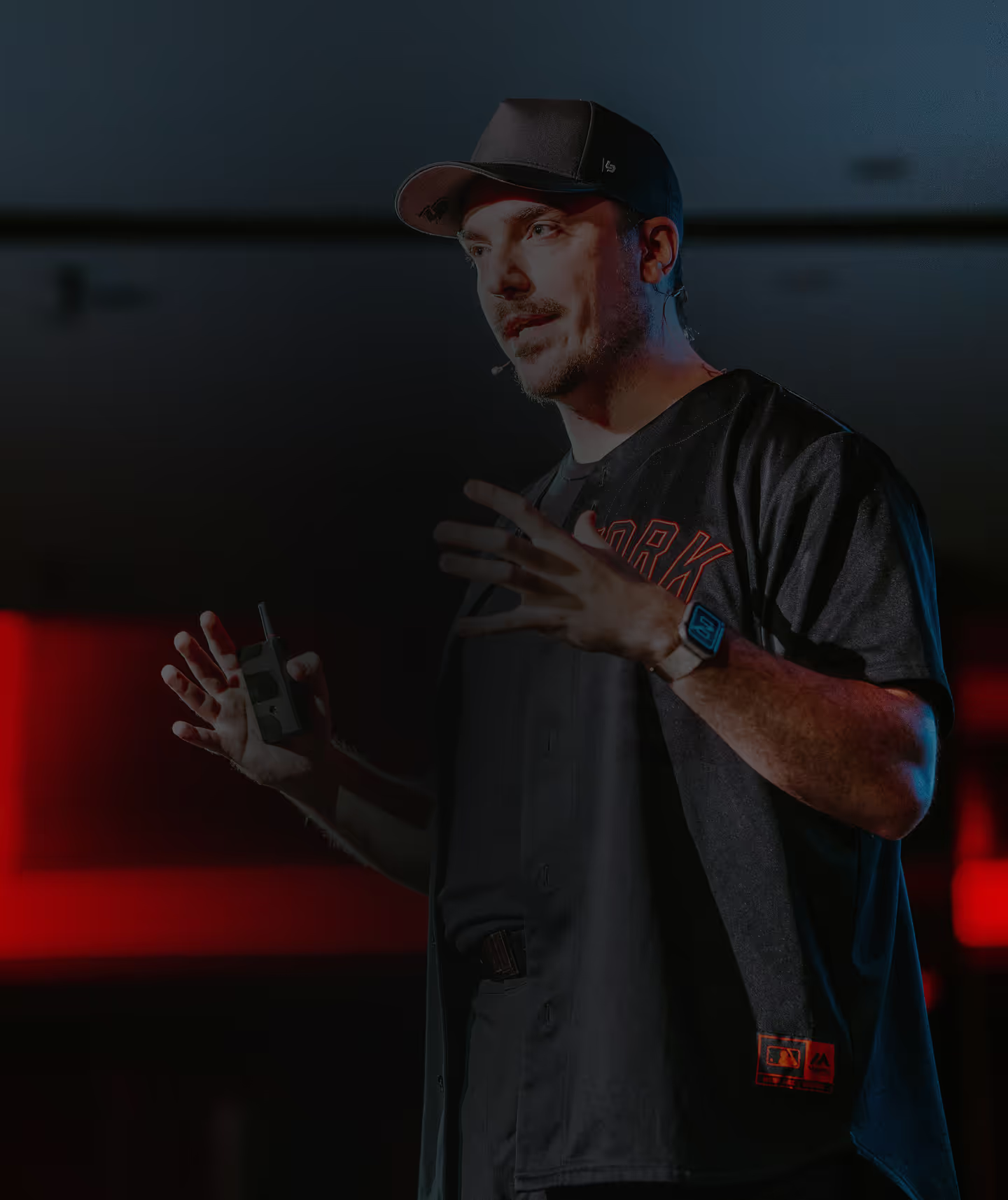
Enquire For Speaking

Let's Get You Branded
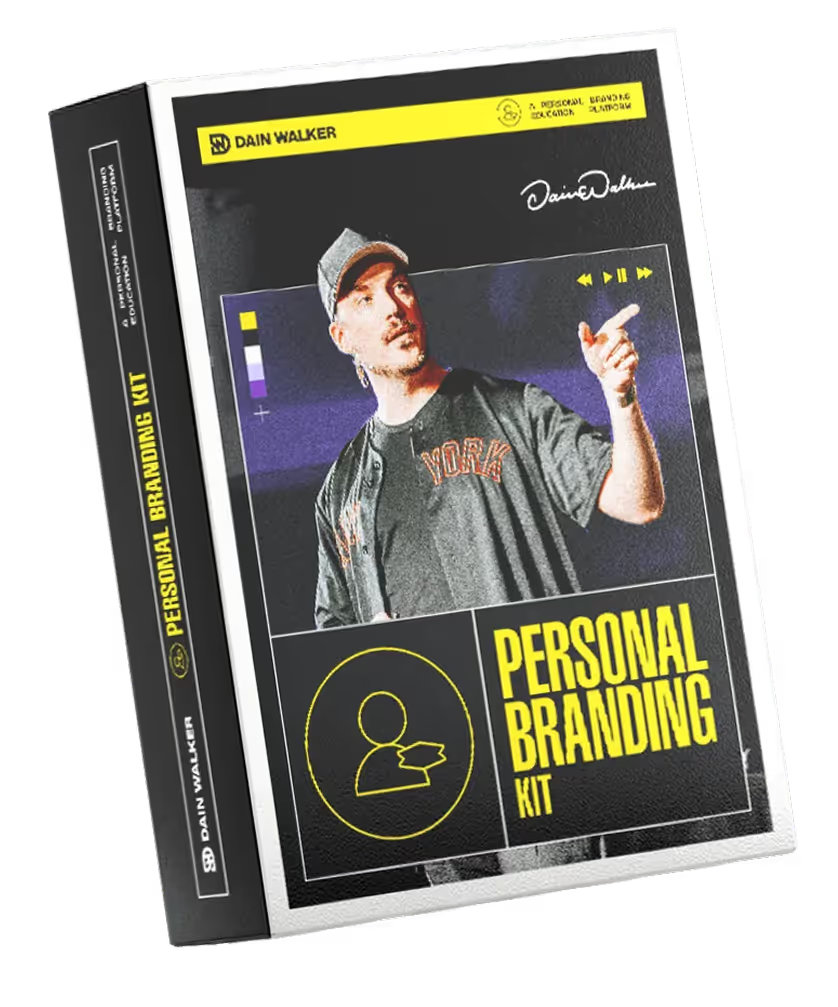
Apply to be a guest
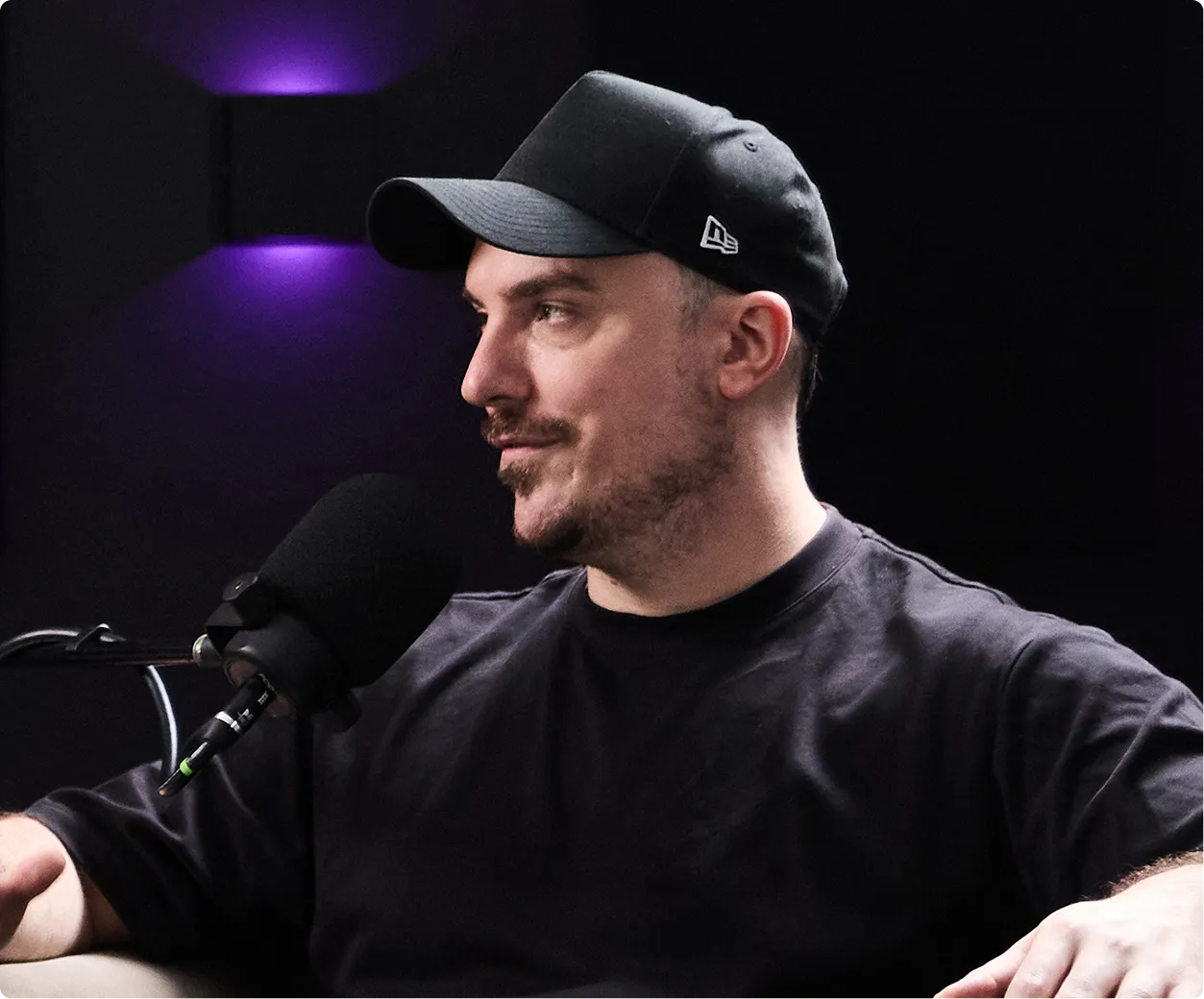
Dive into insights from industry leaders and experts.

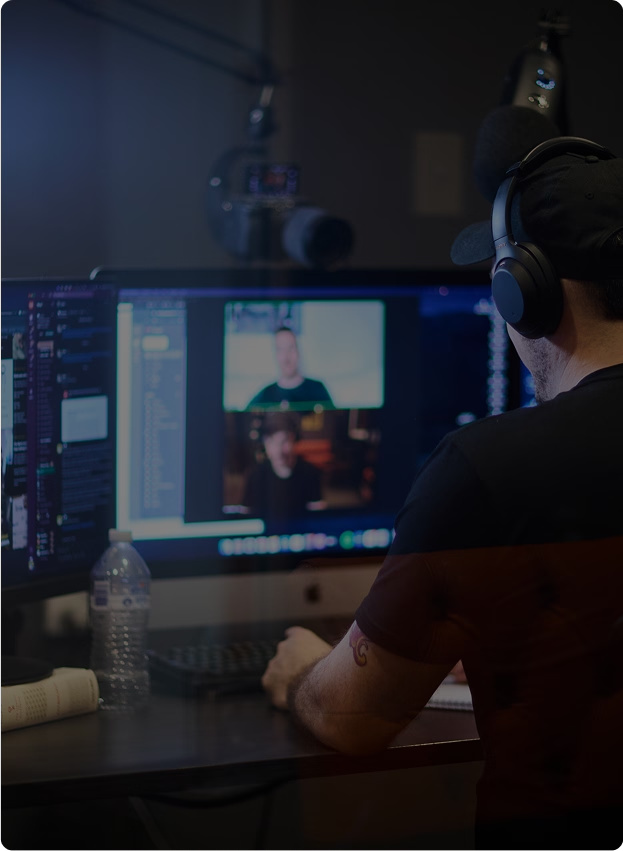

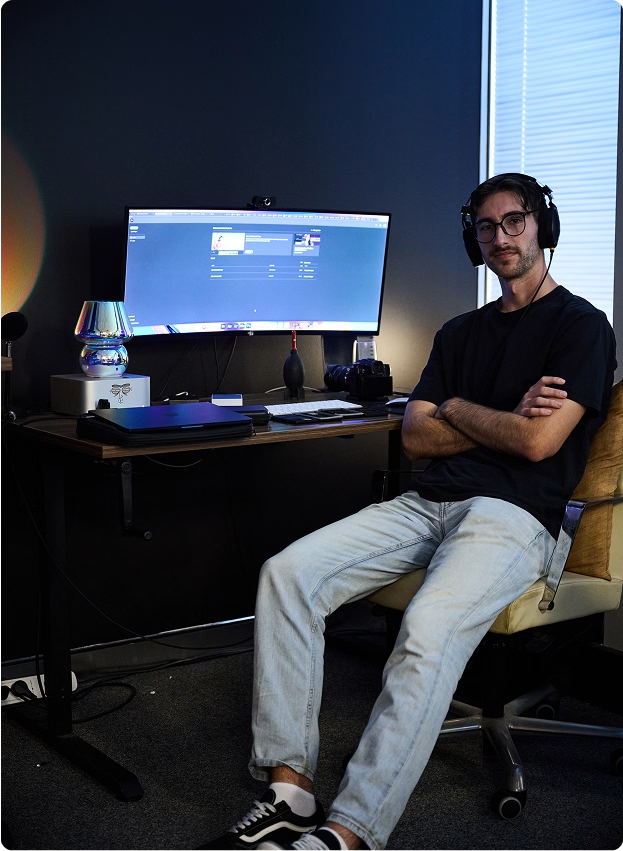
Stream now
Dive into expert advice and industry trends.



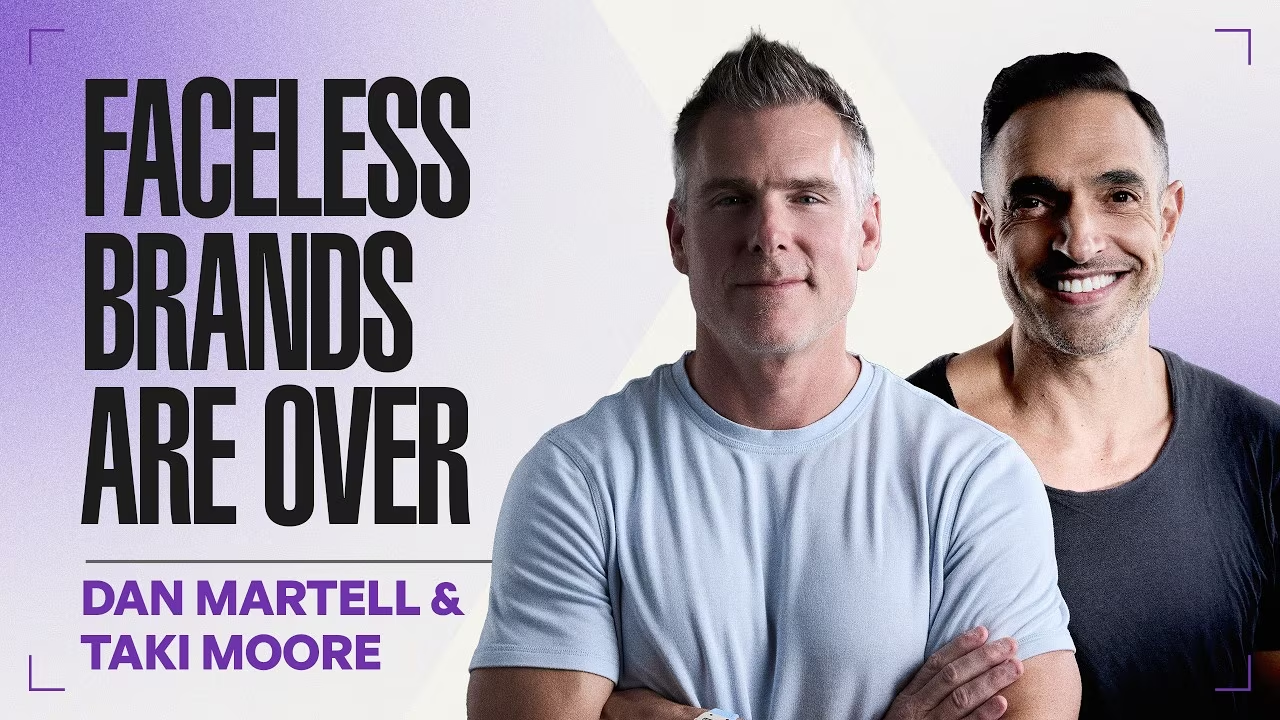
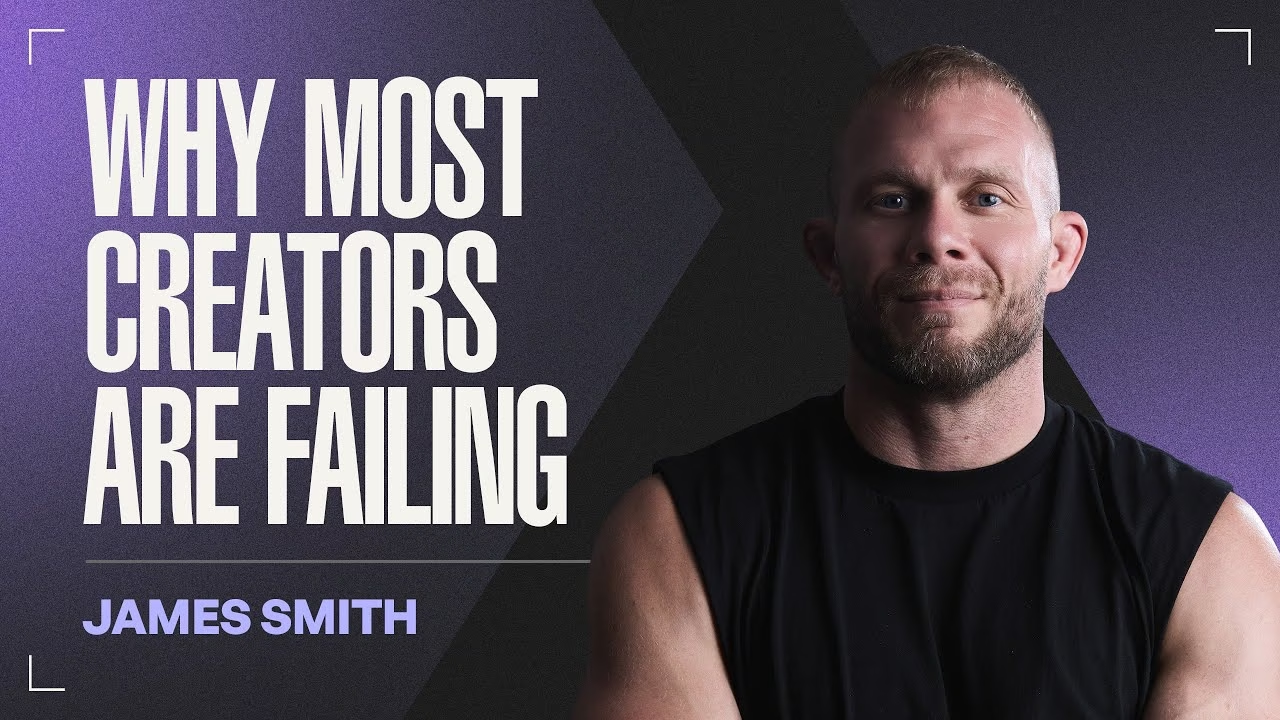

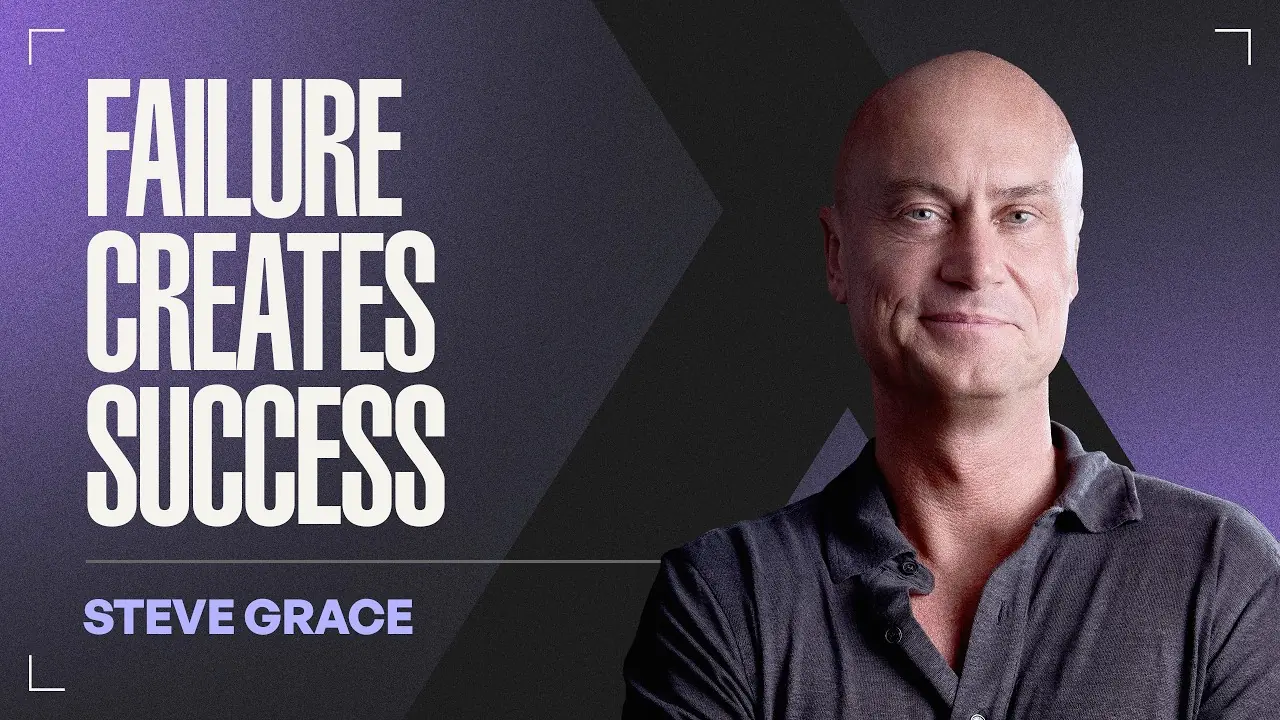



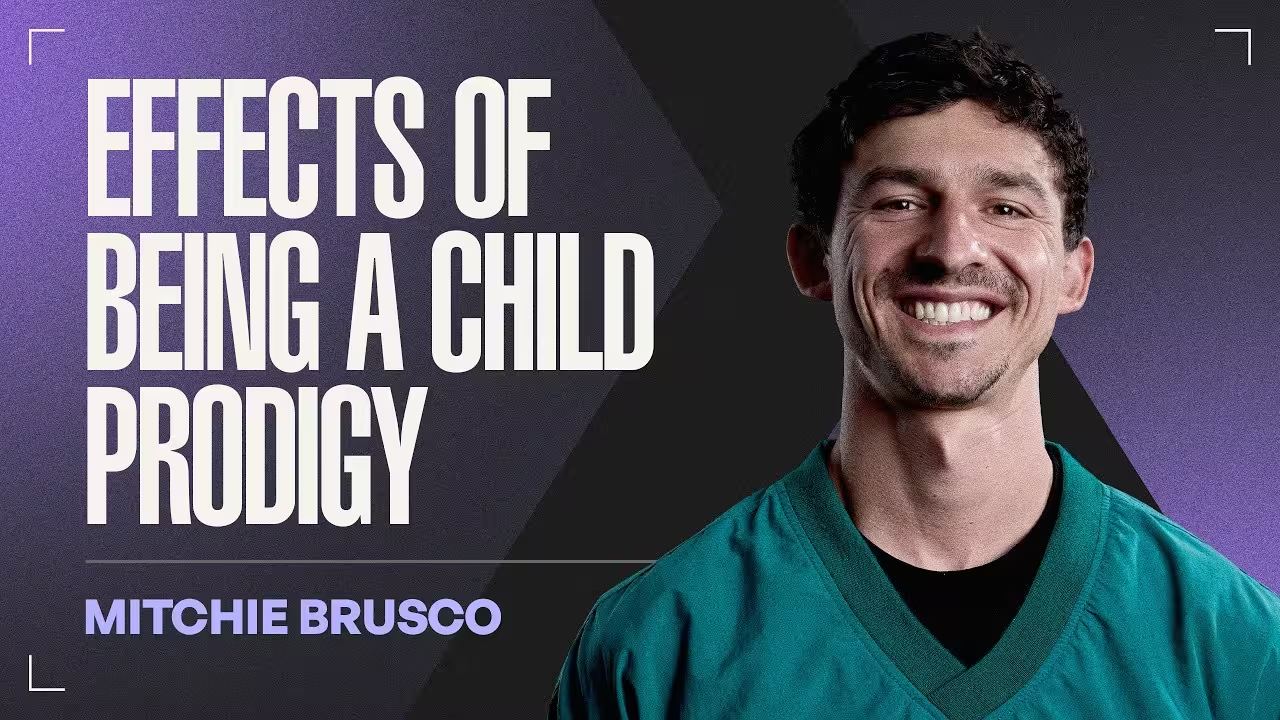
.avif)
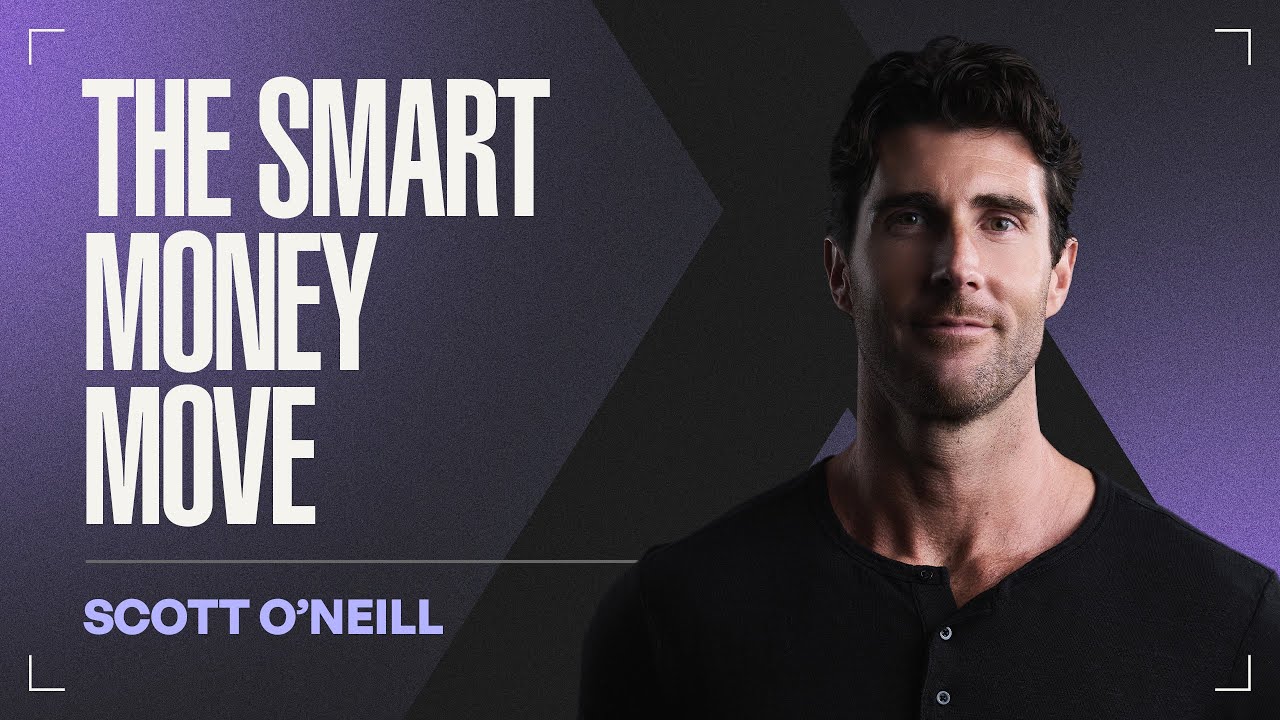


.avif)
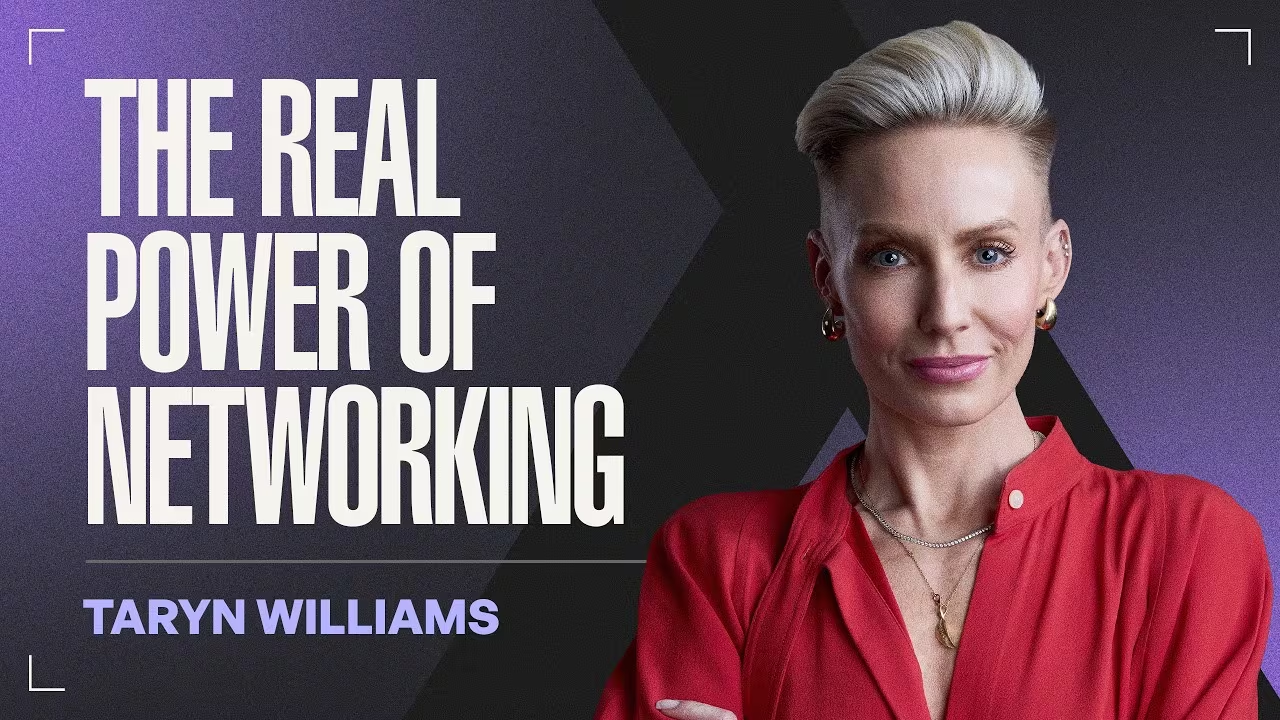

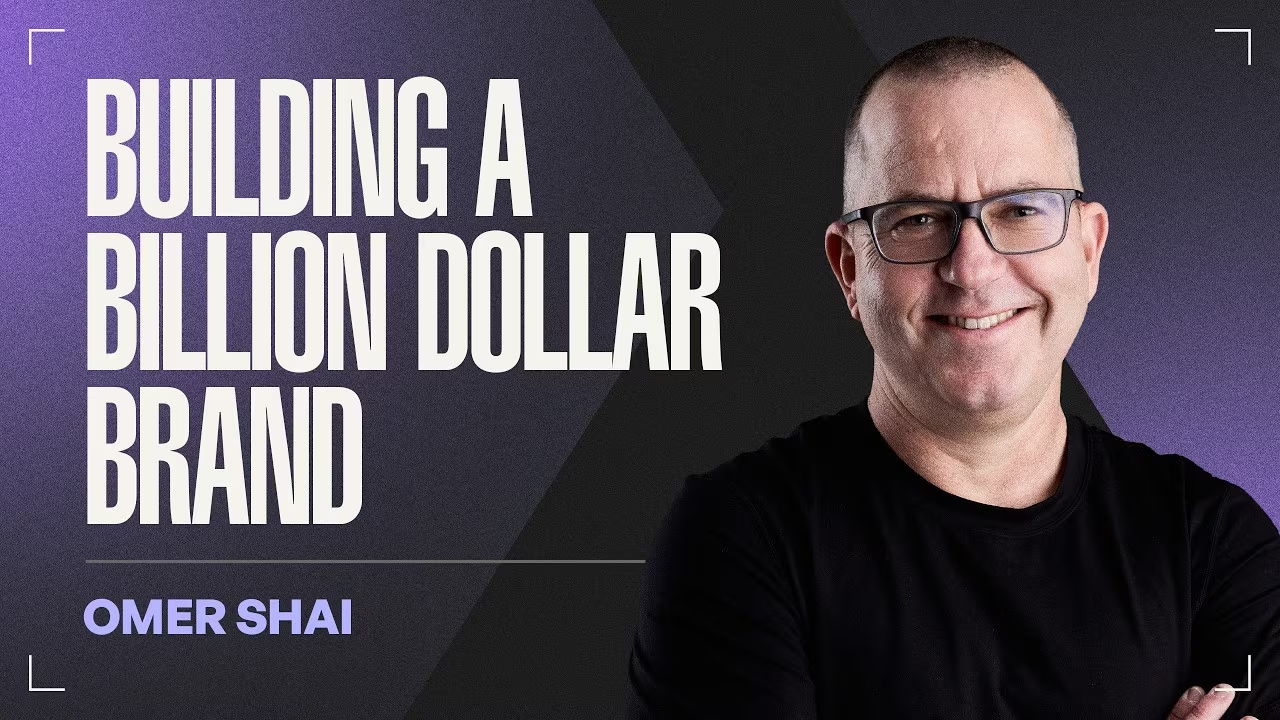

%20(1).avif)

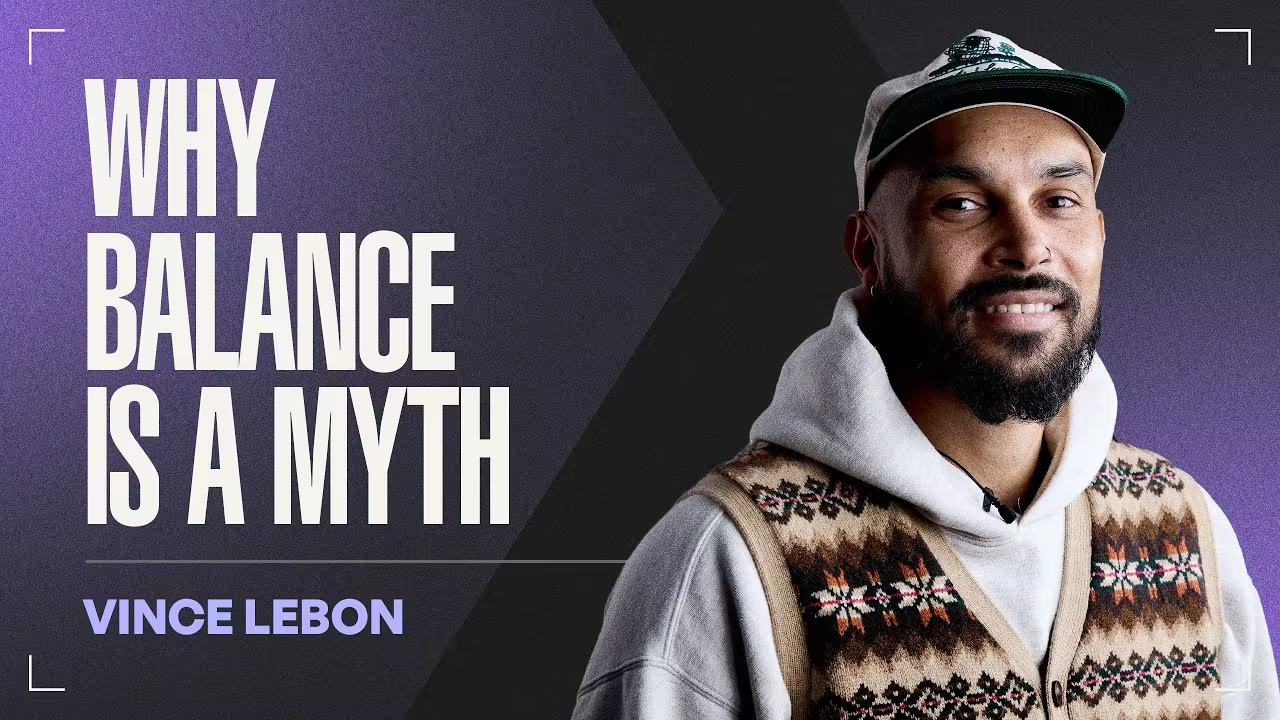

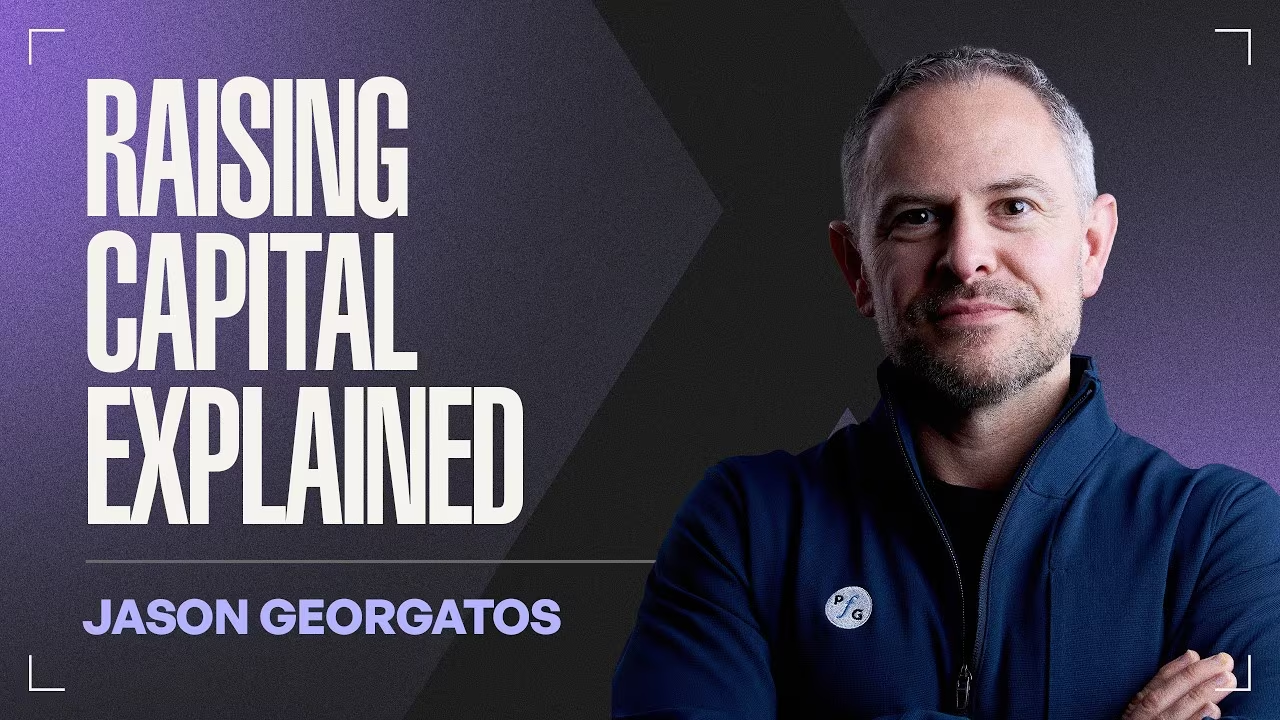



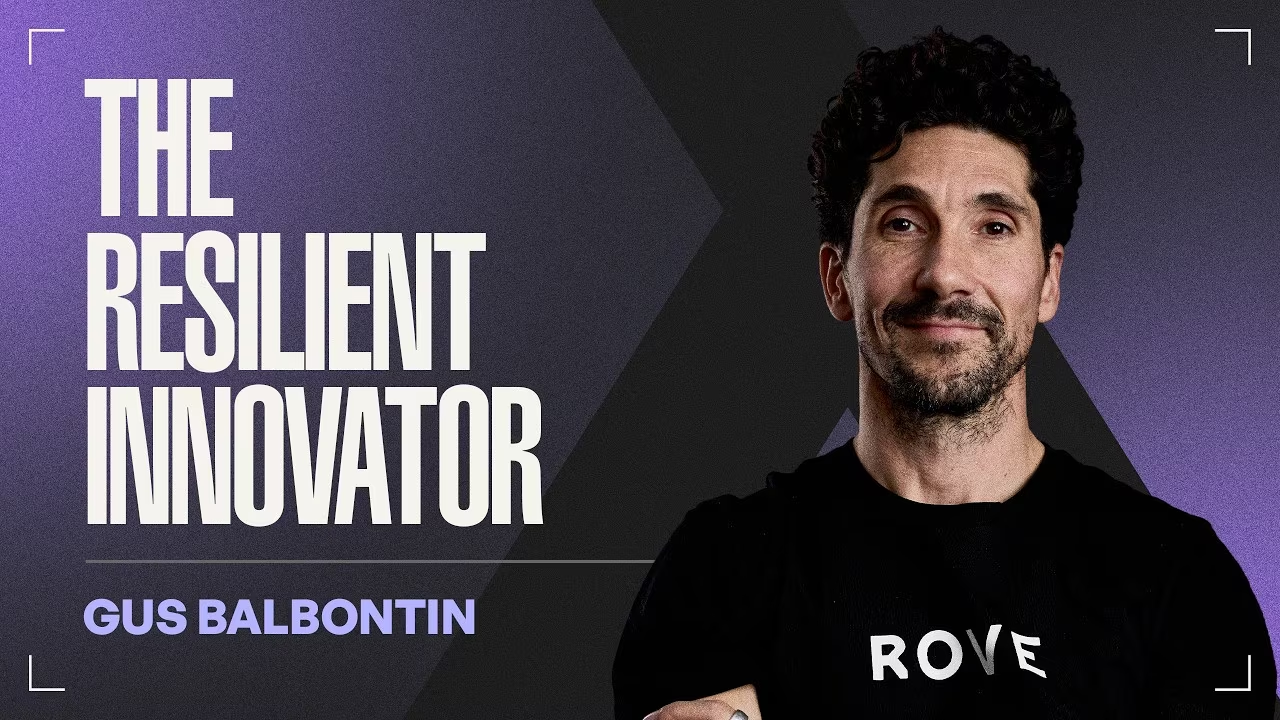
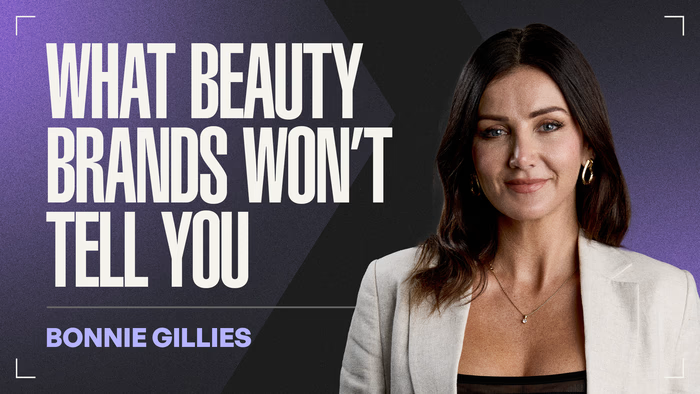


.avif)




